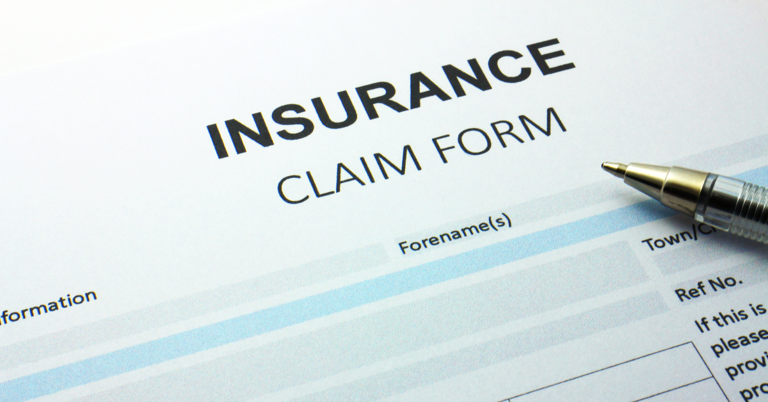Practice Areas

Travel Insurance Dispute Lawyer
Travel mishaps are more common than you think. If you suspect your travel insurance claim has been unreasonably denied, do not hesitate to contact our insurance dispute law firm. We can help you fight back against wrongfully denied, rejected, or delayed travel insurance claims.

Insurance Claim Denied? Wallace Law is On Your Side

Denied Travel Insurance Claims
From family vacations to overseas trips to honeymoons and holidays, vacations are one of life’s greatest pleasures. Often lots of meticulous planning goes into a trip, but unexpected events can hinder the best-laid plans like anything else in life.
Travel insurance is one way travelers get needed peace of mind to protect their investment while making important memories with their family. It is meant to offset risks and potential financial losses that might happen en route or during the vacation.
Sources show that it is customary to pay approximately five to 10 percent of your trip cost for travel insurance. Like any other insurance policy, it is only worth the price tag if your provider delivers on the terms of coverage. Unfortunately, travel insurers may sometimes deny, reject, or underpay a travel insurance claim for various reasons, leaving travelers stuck with unnecessary expenses.
If you live in Wisconsin, Illinois, or Minnesota and your travel insurance claim was denied, you may be able to fight back through filing an insurance dispute lawsuit. A travel insurance lawyer with Wallace Law can help you understand what your travel insurance policy covered, if your insurance claim was underpaid or wrongly denied, and how to take matters into your own hands if an insurer unjustly refuses to pay their fair share.
Types of Insurance Claims
We can help with multiple types of insurance disputes.
Health Insurance Dispute Lawyer
Life insurance dispute lawyer, property insurance dispute lawyer, commercial property insurance dispute lawyer, wisconsin insurance dispute lawyer, what does travel insurance usually cover.
Travel mishaps are more common than you think. Some unexpected issues travelers run into include flight and bag delays, airplane postponements, medical emergencies, and many other interruptions. For example, more than 20 percent of flights were delayed in 2022 .
To help with unforeseen and costly travel incidents, basic policies usually cover delays, cancellations due to sickness or death, lost luggage, and select emergency medical situations and related costs. Comprehensive policies can take it a step further and offer 24-hour traveler assistance, protection against trip disruptions, emergency evacuation, accidental death benefits, and more.
Take a trip cancellation, for example. If you have to cancel due to illness or injury, and your policy covers it, you are likely entitled to a reimbursement if it aligns with the terms and conditions. If an insurer denies, rejects, or underpays a claim despite the coverage, it is time to consider hiring an insurance dispute attorney to help recover your losses.
Wallace Law can help you fight back against a wrongly denied travel insurance claim and poor business practices that exploit travelers every day.

The Fine Print and Travel Insurance Exclusions
A good travel insurance policy will cover basic travel coverage and offer protection for personal belongings, flight cancellations and delays, medical emergencies, and related expenses. Comprehensive travel policies offer travelers more than limited coverage, especially regarding medical needs. While more expensive, these plans are usually more flexible, too.
With any travel insurance plan, there are always exclusions to consider. Most plans do not cover the following:
- Injuries related to extreme sports or activities
- Pre-existing health conditions or illnesses and further injury
- Alcohol or drug abuse
- Illegal acts
- Travel advisories
- Self-inflicted injuries
Regarding exclusions, another thing to pay close attention to is trip cancellations and refunds, whether you have a basic or comprehensive plan. These can cause some strife as reasons for cancellation must align with the insurer’s definition of “covered reasons” under the policy terms. This is often why claims get denied quickly, and travelers lose out on money.
With any insurance policy, the fine print is important, and there are always exclusions and limitations. You can lean on a knowledgeable broker to avoid travel insurance buyer’s remorse and pick a plan that best suits your needs.
Related Content

Travel insurance usually covers events that are considered “unforeseen,” or out of your control. A denied travel insurance claim does not necessarily mean you have no hope of recovering compensation.
February 13, 2023

December 5, 2023
Tips for Purchasing Travel Insurance
Cost is usually the number one reason travelers do not purchase insurance. Vacations are expensive, and travel insurance does not come cheap either.
According to the U.S. Travel Insurance Association , some people are more open to purchasing travel insurance for overseas trips, when going on a cruise, or if they have considerable pre-paid or non-refundable expenses involved.
If you are considering travel insurance, these guidelines can help you find the right policy and protect yourself from unnecessary issues:
- Review the fine print, including specific terms and conditions, reasons for cancellation, and exclusions
- Ensure the policy covers the duration of your trip, from start to finish
- Include an exhaustive list of personal items, electronics, and other possessions you want covered
- Review travel activities to ensure coverage applies, especially if you plan on engaging in potentially dangerous sports like boating, skiing, hunting, or similar activities
- Provide the insurer with a list of any pre-existing medical conditions
- Discuss basic versus comprehensive coverage and events, such as pandemics or epidemics
It is important to research travel insurance carriers and shop for different policies for coverage options. If you are facing issues with a travel claim, our attorneys can review your policy and investigate the insurer on your behalf.
Your Fight Ends Here
Schedule your free legal consultation, handling rejected or underpaid travel insurance claims.
Traveling is unpredictable, much like life. As such, people buy travel insurance coverage in case something bad happens unexpectedly. It is unfortunate, however, when travel insurers blatantly abuse policy agreements and refuse payouts when consumers are entitled to reimbursement. Put simply, you do not purchase insurance to have a claim denied later when you need it most.
There are different tactics travel insurers may use to accomplish this. These might include:
- Issuing denials based on the cancellation reason or purpose
- Delivering rejections based on failing to meet the definition of a covered event
- Intentionally delaying payment
- Offering a smaller reimbursement than what the claim may actually be worth
Many consumers walk away believing the insurance company is right and lose out on the benefits they are entitled to. Sometimes the only effective way to handle a travel insurance denial and an unethical insurer is to speak with an experienced travel insurance dispute lawyer.
There is always another way. Wallace Law can take on your insurance company and help get your travel claim paid when your insurer is delaying your payment for the wrong reasons.

Travel Insurance Dispute? Fight Back With a Travel Insurance Claim Lawyer
Insurance claims get denied every day. Sometimes it is because of policyholder error, coverage restrictions, errors, or lack of documentation. In other cases, insurers might engage in shady, bad-faith claims practices that leave millions of people stranded without travel insurance benefits and in financial stress.
When it comes to travel insurance or any insurance dispute, for that matter, there is always a difference between reasonable and unreasonable claims rejection. A fair and full reimbursement for your travel claim is rightfully yours if the insurer refuses to deliver on the legitimate terms of coverage. There is no excuse for unreasonable denial of benefits, and your reimbursement matters, whether it is $500 or $5,000.
Your losses matter to us, too. Our efforts at Wallace Law are devoted solely to helping travelers and consumers fight back against unfair insurance disputes and wrongfully denied, rejected, or delayed claims. The proof is in the pudding, as we have helped many clients recover losses and gain significant settlements from various insurance dispute claims.
Whatever the reason for your delayed, rejected, or denied travel insurance claim, we always get to the bottom of it. Get clarity on your travel claim by booking a free consultation with Wallace Law today.
What Should I Do If My Travel Insurance Claim is Denied?
If your travel insurance claim is wrongly denied, there are steps you can take to potentially reverse the decision. The first step you can take is submitting an internal appeal with the travel insurance company. If this fails, then legal action may be necessary. Travel insurance companies may try to take advantage of the average policyholder’s unfamiliarity with the claims process and intricacies of insurance policies. Having a travel insurance dispute attorney on your side who knows the tactics insurers use to refuse to pay claims can be instrumental in helping you recover funds.
How Can I Get My Travel Insurance Claim Approved?
To get your travel insurance claim approved, you should first make sure you follow your travel insurance company’s requirements and guidelines for filing a claim. Like other types of insurance claims, the details in your travel insurance claim can mean the difference between an approved or a denied claim. You will need to be able to support your travel claim with relevant evidence, such as medical records, physician statements, flight delay notices, police reports, airline receipts, or any other documentation that proves you suffered a loss that qualifies you for reimbursement. Following the insurer’s process will increase your chances of success. If your travel insurance company still refuses to pay your claim, an insurance dispute attorney can help.
Does Travel Insurance Cover Cancelled Flights?
Travel insurance policies vary, but comprehensive travel insurance policies usually cover canceled flights that delay a trip for at least three to 12 hours. Under some plans, if a flight is delayed for more than 12 hours, policyholders might qualify for trip cancellation coverage. Your travel insurance policy will outline what is covered regarding flight cancellations, possibly including mechanical failures, airline bankruptcy, severe weather, or a shutdown of air traffic control. Other reasons, like staffing shortages, might be excluded from this list and will not be covered under your travel insurance.

Types of Damage
We Can Help With All of Your Insurance Disputes

Roof Damage Insurance Claim Lawyer

Lightning Damage Claim Lawyer

Tornado Damage Lawyer
Our results.
Testimonials
Looking for the best attorney to assist you with your insurance dispute? Well, look no further you have found him! Justin Wallace IS THE BEST!!!!!!! If it wasn’t for him taking over our insurance denial for roof replacement & property damage due to massive hail storm, we never would have received reimbursement to cover our new roof and costs of our other property damage. Justin Wallace has the experience, knowledge, & tenacity to fight for your claim. I HIGHLY RECOMMEND you contact him for your insurance denial.
Laura Pavwoski
Free Unless We Win

We can help you understand your rights under the terms of your insurance policy and stand up to insurers when they refuse to pay their fair share.

Herold Law, P.A.

What Should I Do if I Have a Problem With My Travel Insurance Claim?

Posted on January 26, 2022
Experienced travelers understand the importance of buying travel insurance. Travel insurance coverage can include a cancellation policy as well as adverse events that might take place during the trip. Yet, even if you have a paid policy in place, it can still be challenging to make claims and receive what you are rightfully owed. With all the policy options and fine print, it can be hard to know what is included. In other cases, the company might be holding back on paying a legitimate claim. If you are having problems with an insurance claim, you may want to contact an experienced lawyer as soon as possible.
What Does My Travel Insurance Policy Cover?
With some travel bookings, you need to make all of the payments up front. In other cases, you will make a substantial deposit and make the final payment on a set date. Depending on the insurance company, a travel policy can protect you if you have to cancel the trip or if it interrupted or delayed. Usually, your benefits will be more limited the closer you get to the travel date. A comprehensive policy might also cover emergency medical evacuation costs, costs to replace missing or disappeared baggage, and medical expenses incurred from injuries or accidents experienced on the trip. Most travel policies have many different options to choose from, and like all insurance contracts, you will have to pay more for extra coverage.
If you have to cancel your trip ahead of time and need to make a claim to get reimbursed, the reason will have to be covered in the policy. Legitimate reasons might be your own injury or illness, a job loss, severe weather, family emergency, or military deployment. During the trip, policies may also cover lost or stolen cash, hospital stays, alternative transport expenses, and other covered items.
How Do I File a Travel Insurance Claim?
Before you initiate a travel insurance claim, read over your policy as best as you can. There will be caps on the reimbursable amounts, so you cannot expect to be paid anything over and above those. Also, hold on to any receipts for out-of- pocket expenses due to having to make new travel arrangements related to delays, cancellations, and other problems that were out of your control.
Your travel insurance policy should include a 24/7 customer assistance line that can help you with questions, making claims, and emergency assistance. These phone lines are often busy, so know in advance that you might need to wait until you can reach a person. This person should be able to tell you what you need to do. If you are traveling and experience any problems, that number should be the first one you call.
They should be able to help with locating medical facilities and arranging alternate transportation if you experience problems when you are away. If you are far away from home and there is an accident requiring medical care, you will want to make sure that the facilities you use are covered by your plan. This includes urgent cares, hospitals, and pharmacies.
How Will I Be Reimbursed?
When trips are cancelled, travel insurance companies only reimburse policy holders for prepaid and nonrefundable money that is lost. They will need to see documentation before anything is paid out, too. For emergency situations while traveling, the provider will ask intake questions about what happened and where the customer was treated.
The provider’s customer service representative can let you know how to make a claim, and it will most likely involve considerable paperwork. In many cases, there are delays and you might not see the money for a long period of time. It is also not unusual for claims to be denied. Reasons might include cancellation for the outbreak of a disease, the provider not agreeing that the bad weather conditions were severe enough to delay a trip, and the policy owner not completing the paperwork properly, or failing to provide adequate documentation.
Tips for Buying Travel Insurance
Traveling can be very expensive, and this is why so many people neglect to purchase insurance. Even when they do, the policy can be so long that purchasers do not read it in full. Some policies offer cancellation for any reason; these can be more costly but provide blanket coverage.
Here are some guidelines for travel insurance policies:
- You need to be covered for the trip’s full duration, from the time you walk out of your house until you get back home.
- Make sure to cover all of the items you will be bringing, including that expensive laptop, jewelry, and anything else of value. Some policies may not be able to cover these.
- If you have pre-existing medical conditions, let the insurer know about them. Otherwise, they may attempt to sue you for fraud.
- Do you plan to engage in a dangerous activity, such as skiing? This may not be covered.
- Ask if the provider has a pandemic insurance plan.
- Travel agents can be helpful when it comes to recommended travel insurance plans. Seek out their opinions if you are booking through them.
- Many of these policies offer free look periods. You can buy a policy and then take that time to read everything over and ask questions. If you are unsatisfied with the offerings, shop for a better policy.
- Understand the exclusions and limits, and keep them in mind when making your final travel plans. You might want to leave that expensive laptop at home.
Warren Insurance Lawyers at Herold Law Can Help You if Your Travel Insurance Provider Has Unjustly Denied Your Claim
Insurance policies often put up roadblocks when customers try to make claims, and many times, those barriers are against the law. If you are dealing with this dilemma, get in touch with one of our Warren insurance lawyers at Herold Law , P.A. For an initial consultation, call us at 908-647-1022 or complete our online form . Located in Warren, New Jersey, we serve clients throughout the surrounding areas, including Plainfield.
- Category: Insurance Law

Contact Our Law Firm for All Your Legal Needs

Herold Law, P.A., provides a full range of legal services for businesses in New Jersey, New York, and Florida. To speak with a legal professional experienced in your area of need, call 908-679-5011 or complete our simple intake form on our website to schedule a consultation. While located in Warren, New Jersey for the convenience of our New Jersey clients, we also serve clients in New York and Florida. © 2024 Herold Law, P.A. - All Rights Reserved.

Travel Insurance Claims
To protect themselves from accidental injuries or illness, wise travellers get travel insurance. When they, for example, head south, they hope to be covered for things such hospital visits, emergency surgery and physician care.
However, if they actually need the insurance money, they could find their claims are delayed or denied for a variety of reasons. It could be a miscommunication between the insured and the insurance company, or medical questions or exclusions on the policy that are vague and open to interpretation, and the list goes on . . .
Trying to get the insurance money you are entitled to after suffering a serious accident or illness abroad could be a great hardship at a time you can ill afford it. This is why you need an experienced personal injury law firm like Edson Legal on your side.
We handle serious travel insurance disputes ($100,000 plus), using all the resources and experience at our disposal to ensure you make the strongest claim possible and get the travel insurance money you have paid for.

How to File a Travel Insurance Claim
W hen it comes to travel, there are generally two types of people: people who cannot travel as it is too expensive and those who budget $4,000 per year for vacations, according to Forbes. Travel is costly, so people often purchase travel insurance to safeguard their financial investment from unforeseen events like illnesses, luggage delays, personal emergencies, and more.
When policyholders pay honest money for an insurance policy to offer protection, they want to be able to reap the benefits of the travel insurance claim. If your travel insurance company has denied payment, our tips on how to properly file a travel insurance claim may be helpful.
Why Buy Travelers Insurance?
Travel is generally less stressful with vacation insurance — it is packaged as a wise investment that can protect you against financial losses due to unexpected events. For instance, the U.S. State Department highly recommends international travel trip insurance as Medicare and Medicaid often do not cover overseas medical costs.
The travel insurance premium is relatively small compared to the non-refundable trip costs you could lose in a bad situation. It is particularly worth it if your trip involves non-refundable costs, international travel, or travel to a remote area with limited healthcare facilities or regions prone to natural disasters.
Some of the primary reasons people buy trip insurance are to help offset:
- Emergency medical services and treatment
- Cancellations due to a sudden illness or serious health condition
- Emergency evacuation
- Loss of a friend or family member
- Compromised destinations
- Delayed or lost luggage
- Trip interruption or cancellation
What Is Not Covered By Travel Insurance?
The best insurance policies cover basic and common travel risks and bundle different coverage types related to trip cancellation, medical issues, luggage or trip delays, and more. Travel insurance is not meant to cover all foreseeable events, and every policy will address exclusions differently. Examples of potential limitations are:
- Tropical storms, hurricanes, and other dangerous weather conditions
- Certain medical issues
- Acts of war
- High-risk behavior involving drugs, unlawful acts, or riots
- Government-imposed restrictions
Travel insurance claims submitted without proper documentation or cancellation for reasons not covered by your travel policy are surefire ways to prevent coverage and reimbursement. This is why it is helpful to understand travel insurance coverage properly and take appropriate actions before assuming foul play.
Can You Cancel Travel Insurance and Get a Refund?
Most travel insurance carriers allow refunds, depending on when a policy is canceled and if there is a money-back guarantee. Most insurers ask that the policy be revoked during the review period outlined in the contract terms to qualify for a complete travel insurance refund. If the review period has passed, then policyholders might be eligible for a partial refund or not qualify for one at all.
What To Do if a Travel Insurance Claim Is Denied
If your travel insurance claim submitted for medical reasons, delays, cancellations, or any other reason was denied by your insurer, then remember that you have options. Both denials and rejections may happen for valid as well as unethical reasons. An insurance claim denial is not the end of the road; you can dig deeper to figure out whether you can still be reimbursed under your insurance.
Travel insurance claims are routinely denied when policyholders make common mistakes in their claim forms, or they mistakenly assume their policy covers their specific situation. Good faith denials happen when policyholders do not fill out their travel insurance claim form correctly, do not submit the right documents, or do not include info like contact details for follow-up questions.
In some cases, travel insurance companies may wrongly deny claims and stall the claims process. For instance, they might fail to investigate the claim or conduct proper due diligence. In such scenarios, it is advisable that policyholders adjust and resubmit their insurance claim, appeal the denial, or pursue legal action if insurers continue to illegally hold their payout.
How To Appeal a Travel Insurance Claim: 4 Steps
The travel insurance claim appeal process allows policyholders to ask the insurer to reconsider its decision. When appealing their travel insurance claim, policyholders must:
- Carefully Review the Denial Letter: Review the specific reasons for the denial to determine your next steps. Cross-check the reasons stated with your policy documents, additional emails, and other papers.
- Review Your Policy: Review the terms of your travel insurance policy and pay attention to disclaimers, damage limits, filing time limits, and submission requirements.
- Reach Out for Assistance: After carefully reviewing your policy, if you find the denial letter and policy terms do not line up, contact an insurance legal expert with experience in handling travel insurance claims for help.
- Gather Documentation and Keep Careful Records: Maintain communication records with your insurer, copies of denial letters, and other documentation regarding your claim.
How To Write a Travel Insurance Claim Letter
Sometimes, travelers have to file a trip insurance claim when their vacation does not go according to the plan. A travel insurance claim letter is a formal piece of communication between you and your insurance agency. Its purpose is to ask for reimbursement for covered damages or losses under the travel insurance policy. Therefore, it is important to craft a professional and detailed claim letter to increase your chances of a favorable resolution.
A claim letter should include the following information:
- Introduce Yourself. Include all relevant information of the person appealing (such as the policy number and contact information).
- Address the Denial. Summarize the date you received the letter and why the denial was made. Do not leave out any important details.
- Point Out the Error. Explain why you do not agree with the claims denial, based on your policy and pertinent information.
- Attach Extra Documents. Include all other documents supporting your trip insurance claim, such as photos, additional correspondence, transcripts of phone calls, etc.
How Long Does It Take To Get Reimbursed From Insurance?
Travel insurance companies generally process most claims within a few weeks. Sometimes, the insurance claims process office might have follow-up questions, thereby increasing the time you can expect to hear back. However, if you feel that your insurance claim is taking months to resolve without a proper reason, you should speak to an experienced insurance dispute lawyer. While every situation is different, policyholders should always keep careful and consistent notes as it will help them take informed legal action if necessary.
Travel Insurance Claims Advice on Documentation
You must be thorough with your documentation to enhance your chance of successful recovery. When you file a trip claim, your insurer will more likely refund travel insurance when you include the following information in your claim submission:
- Lost Luggage: Make a list of what was lost, along with the details and cost of each lost item.
- Job Loss: Request that your previous employer send you a notarized letter on company letterhead in the case of a trip cancellation due to job loss.
- Medical Emergency: Include detailed medical records in your claim if a health emergency kept you from traveling.
- Canceled/Delayed Flight: If you could not attend your trip because the flight was canceled or delayed, provide proof such as an email that relays the reasons (mechanical issues, weather, etc.).
- Receipts for Delayed Flights: You might want to keep receipts for necessary expenses incurred due to delays, like hotel stays, transportation costs, meals, and personal necessities.
- Police Reports: These reports can help substantiate claims made for stolen items or car troubles.
- Other Reports: You may include tickets for unused flights or excursions in your insurance claim.
Has a Formal Complaint Been Filed Against the Travel Supplier?
Formal complaints against travel suppliers are helpful in legal cases dealing with similar situations. The Van Rossem v. Penney Travel Service (April 15, 1985) case exemplifies travel insurance gone wrong.
In this case, a newlywed couple arranged a honeymoon trip with travel agent Penney Travel. The agent used a wholesaler, Lotus Tours, to book the reservation without the couple's knowledge. Lotus Tours abruptly went bankrupt before booking the client's reservation with SANDLES, which remained unpaid. When the case came before the court, the judge noted that "an agent who makes the contract in his own name for an undisclosed principal is liable as a principal." Here, the defendant had failed to disclose the identity of Lotus Tours, and so, it was responsible as the principal. The couple had paid $2,059 in advance. The judge awarded them reimbursement of $1,312, plus costs and disbursements.
In another lawsuit, Touhey v. Trans National Travel , a travel agent did not check to see if the hotel a client had booked was duly constructed. The plaintiff-client was awarded $25,000 in special damages because of the mistake.
What Are Bad Faith Insurance Practices?
Bad faith insurance refers to unethical insurance practices used by an insurer to delay, deny, or lowball policyholders. Examples of bad faith insurance practices include:
- Misrepresenting contract language to prevent a payout
- Failing to disclose policy limitations and exclusions to policyholders
- Making unreasonable demands, like excessive paperwork requests to prove a covered loss
Sometimes, only a seasoned insurance dispute lawyer who regularly deals with contract breaches and bad faith claims can identify honest errors from serious red flags and help a policyholder get paid their due.
How to File a Travel Insurance Claim: A Summary
Travelers usually plan their vacations down to the last detail. Travel insurance is a buffer for unplanned curveballs that can derail even the most meticulous plans, such as medical emergencies or misplaced luggage.
Insurance companies are explicit about what travel mishaps or unexpected events they will or will not cover, which is why it is crucial to understand policy limitations and how to properly file a travel insurance claim.
As a final snapshot, the key steps to filing a travel insurance claim include:
- Reviewing policy terms and exclusions.
- Gathering necessary documentation based on submission requirements.
- Submitting your claim according to the insurer's timing and filing guidelines.
- Filing an appeal if an insurance claim is wrongly denied.
- Consulting an experienced insurance dispute lawyer to assist with an intentionally stalled, denied, or undervalued claim.
Travel insurance claims can become challenging, depending on the situation and response from your insurer. When small bumps in the road become permanent roadblocks, it is helpful to know that qualified travel insurance claims attorneys are available to help frustrated policyholders recover their losses.

- Travel Insurance
Travel Insurance Lawyer: Your Legal Guide
- 3 months ago
- Read Time: 7 minutes

In today’s world, the role of a travel insurance lawyer has become increasingly vital. Whether you’re jet-setting for leisure or business, understanding the intricacies of travel insurance policies can be daunting. A travel insurance lawyer is a specialized legal guide, adept at clarifying these complexities and protecting your rights during travel mishaps. They serve as your advocate in situations like denied claims, policy disputes, or unexpected legal challenges while abroad. This guide aims to demystify the importance of a travel insurance lawyer in ensuring your peace of mind during your global adventures.
Table of Contents
Understanding the Role of a Travel Insurance Lawyer
A travel insurance lawyer is a legal professional who specializes in the specific nuances of travel insurance policies and claims. These lawyers are well-versed in the intricacies of travel-related legalities, ranging from trip cancellations and interruptions to medical emergencies while abroad. Their role is pivotal in guiding clients through complex travel insurance documents, ensuring that their rights are protected, and offering legal recourse in the event of disputes or unexpected issues during their travels.
Why Consult a Travel Insurance Lawyer?
Consulting a travel insurance lawyer is advisable when you need expert guidance in understanding the often intricate terms of travel insurance policies. These professionals can interpret the fine print that dictates what is covered and what isn’t, helping you make informed decisions. In situations where claims are denied or disputes arise with the insurance company, a travel insurance lawyer becomes an invaluable ally. They can negotiate on your behalf, ensuring that you receive the compensation you’re entitled to under your policy.
Decoding Travel Insurance Policies
Travel insurance policies can be complex, filled with legal jargon that is difficult for the average person to decipher. A travel insurance lawyer can demystify these terms, helping you understand your coverage, limitations, and exclusions. They can also assist in identifying potential gaps in your policy that could leave you vulnerable during your travels.
Legal Assistance in Claim Disputes
When disputes arise, particularly in the case of a denied claim, a travel insurance lawyer can provide the necessary legal support. They can review your case, gather evidence, and present a strong argument to the insurance company or in court, if necessary. Their expertise can be crucial in overturning denied claims and ensuring fair treatment.
When to Seek Legal Assistance in Travel Matters
Seeking legal assistance can seem like a step reserved for extreme situations, but there are specific scenarios where it becomes essential.
Denied Claims: Understanding Your Rights
One of the primary reasons to seek a travel insurance lawyer is when a claim is unjustly denied. Understanding your rights in these situations is crucial, and a lawyer can help navigate the appeals process, providing you with the best chance of having the denial overturned.
Complex Cases: Navigating Legal Technicalities
Complex cases, such as those involving large sums of money or legal ambiguities, require the nuanced understanding of a travel insurance lawyer. They can guide you through the legal technicalities, ensuring that your case is handled correctly and efficiently.
International Travel: Dealing with Global Jurisdictions
Traveling internationally can introduce additional legal complexities, particularly when dealing with incidents that occur across different jurisdictions. A travel insurance lawyer can help you understand the implications of international laws and how they interact with your insurance policy.
Selecting the Right Travel Insurance Lawyer
Choosing the right lawyer is critical to ensure that your travel-related legal matters are handled effectively.

Qualities of an Effective Travel Insurance Lawyer
An effective travel insurance lawyer should possess a deep understanding of travel law, experience in handling similar cases, and the ability to communicate complex legal concepts in understandable terms. They should also demonstrate empathy and a genuine interest in resolving your specific travel issues.
How to Find the Right Legal Expertise
Finding the right legal expertise can involve researching law firms specializing in travel law, seeking recommendations from friends or colleagues, or consulting legal directories. It’s important to choose a lawyer who has a proven track record in handling travel insurance cases.
Evaluating Credentials and Experience
When evaluating potential lawyers, consider their credentials, years of experience, and their history of handling travel insurance cases. Reviews or testimonials from past clients can also provide insight into their effectiveness and client satisfaction.
The Claims Process: A Step-by-Step Guide
Navigating the claims process in travel insurance can be a daunting task, but understanding the steps involved can make it more manageable.
Initiating a Claim: Where to Begin?
The first step in initiating a claim is to thoroughly review your insurance policy to understand what is covered. Then, gather all necessary documentation related to the claim, such as medical reports, police reports, or proof of trip cancellations.
Documentation and Evidence: Building Your Case
Documentation and evidence are key in building a strong insurance claim. This includes collecting all relevant paperwork, receipts, and any other evidence that supports your claim. A travel insurance lawyer can help in identifying the necessary documentation and ensuring it is presented effectively.
Negotiating with Insurance Companies
Negotiating with insurance companies can be challenging. A travel insurance lawyer can take on this task on your behalf, using their expertise to negotiate for a fair settlement. They understand the tactics insurance companies may use and how to counter them effectively.
Common Legal Challenges in Travel Insurance
Travel insurance cases can present unique legal challenges that require specialized knowledge and experience to navigate.
Pre-Existing Conditions and Coverage Denials
One common challenge in travel insurance is dealing with pre-existing conditions and how they are treated by insurance policies. Coverage denials based on pre-existing conditions are a frequent issue, and a travel insurance lawyer can help in contesting these denials when they are unjustified.
Policy Exclusions and Limitations
Understanding and contesting policy exclusions and limitations is another area where travel insurance lawyers can provide valuable assistance. They can clarify your policy’s terms and represent you in coverage disputes.
Cross-border Legal Complications
Cross-border legal complications arise particularly in international travel scenarios. Dealing with laws and regulations that vary from one country to another can be complex, and a lawyer with expertise in international travel law is essential in these cases.
Case Studies: Travel Insurance Lawyers in Action
Real-life case studies can provide insight into how travel insurance lawyers have successfully navigated complex cases for their clients.
Successful Claim Resolutions
Case studies of successful claim resolutions demonstrate how travel insurance lawyers have helped clients overturn denied claims, negotiate settlements, and receive the compensation they deserve.
Navigating International Legal Waters
Case studies involving international legal issues showcase the lawyer’s expertise in handling cross-border disputes and navigating the legal systems of different countries.
Overcoming Policy Ambiguities
These case studies highlight how travel insurance lawyers successfully deal with ambiguous policy terms, ensuring the protection of their clients’ rights and fair treatment under their insurance policies.
The Future of Travel Law
The travel industry and the legal issues surrounding it are constantly evolving. This section looks at what the future may hold for travel law and how it might impact travelers and legal professionals.
Emerging Trends in Travel Insurance
Emerging trends in travel insurance, like the increasing use of technology in claims processing and coverage changes due to global events, will influence the writing of policies and the handling of claims.
Legal Innovations and Travel
Legal practice innovations, especially those involving technology, will likely change the resolution of travel insurance disputes. This could include more online dispute resolution mechanisms and the use of AI in assessing claims.
Preparing for Future Travel Challenges
As the nature of travel continues to evolve, so will the challenges faced by travelers and the legal professionals who assist them. Staying informed about these changes and how they impact travel insurance is crucial for both travelers and lawyers alike.
Conclusion:
In conclusion, a travel insurance lawyer stands as a crucial ally for anyone engaging in travel, providing expert legal guidance and support when it’s most needed. Their role transcends mere advice; they offer a shield against the unpredictability of travel and the complexities of insurance policies. A travel insurance lawyer expertly represents your rights and interests, whether you face denied claims, navigate international legal waters, or simply seek clarity on your policy. Remember, in the dynamic realm of travel, having a specialized legal professional on your side can make all the difference.
Q: What services does a travel insurance lawyer offer?
A: A travel insurance lawyer offers services including interpreting travel insurance policies, assisting in claim disputes, and representing clients in legal proceedings related to travel issues.
Q: When Should I Seek Advice from a Legal Expert in Travel Insurance?
A: You should consult a travel insurance lawyer when facing a denied insurance claim , requiring assistance in understanding complex policy terms, or dealing with legal challenges during international travel.
Q: Can a Legal Advisor in Travel Insurance Assist with International Travel Issues?
A: Absolutely, an Attorney Specializing in Travel Insurance expertly handles international travel issues, including understanding various legal jurisdictions and resolving cross-border disputes.
Q: How Can an Attorney Specializing in Travel Insurance Help with Claim Denials?
A: A travel insurance lawyer can review your case, gather necessary evidence, and negotiate with insurance companies to challenge unjust claim denials effectively.
Q: What Qualities Define a Skilled Legal Advisor in Travel Insurance?
A: A good travel insurance lawyer should have expertise in travel law, a strong track record of handling similar cases, and the ability to communicate complex legal matters clearly.
Asad Sohail
Related posts.

Home Improvement Costs: A Detailed Guide

Are Goldbacks a Good Investment? Find Out Here!

What Is a Lifestyle Hotel? A Unique Hospitality Trend
- 4 weeks ago

Continuing Insurance Education: A Comprehensive Guide
- 1 month ago
Leave a Reply Cancel reply
Your email address will not be published. Required fields are marked *
Save my name, email, and website in this browser for the next time I comment.
Winter is here! Check out the winter wonderlands at these 5 amazing winter destinations in Montana
- Plan Your Trip
- Safety & Insurance
What To Do If A Travel Insurance Claim Is Denied
Published: December 18, 2023
Modified: December 28, 2023
by Bernette Loza
- Sustainability
- Travel Tips
Introduction
Understanding the Importance of Travel Insurance Claims
Travel insurance is a crucial safety net for individuals embarking on domestic or international trips. It provides financial protection against unforeseen events such as trip cancellations, medical emergencies, and lost luggage. However, there are instances when a travel insurance claim may be denied, leaving policyholders feeling frustrated and uncertain about their options.
In this comprehensive guide, we will explore the common reasons for claim denials, the importance of reviewing your policy, the process of appealing a denial, and the potential recourse of seeking legal assistance. By understanding these essential steps, you can navigate the complexities of travel insurance claims with confidence and clarity.
Whether you're planning a leisurely vacation, a business trip, or an adventure-filled journey, having a solid grasp of the claim denial process can mitigate potential stress and ensure that you are adequately prepared for any unexpected challenges that may arise during your travels. Let's delve into the intricacies of travel insurance claim denials and the proactive measures you can take to address them effectively.
Understanding the Reasons for Denial
Common Factors Leading to Travel Insurance Claim Denials
When a travel insurance claim is denied, policyholders are often left bewildered and frustrated, wondering why their legitimate request for coverage has been turned down. It is essential to comprehend the common reasons behind claim denials to navigate this challenging situation effectively.
One prevalent reason for claim denials is the failure to meet the specific criteria outlined in the policy. This can include submitting incomplete documentation, exceeding the time limit for filing a claim, or engaging in activities not covered by the policy, such as extreme sports or pre-existing medical conditions.
Another factor contributing to claim denials is the lack of transparency during the application process. Failing to disclose pertinent information or providing inaccurate details can lead to claim rejections, as insurers rely on the accuracy of the information provided to assess risk and determine coverage.
Furthermore, certain circumstances may be excluded from coverage based on the policy’s terms and conditions. These may encompass events such as acts of terrorism, civil unrest, or natural disasters in specific regions, which insurers may deem as high-risk and therefore not within the scope of coverage.
Understanding these common reasons for claim denials is pivotal in preparing for potential obstacles when filing a travel insurance claim. By familiarizing yourself with the intricacies of policy requirements and coverage limitations, you can take proactive measures to mitigate the risk of denial and ensure that your claim aligns with the insurer’s guidelines.
Reviewing Your Policy
Key Steps to Assessing Your Travel Insurance Policy
Upon encountering a denied travel insurance claim, it is crucial to conduct a comprehensive review of your policy to gain clarity on the coverage details, exclusions, and the specific reasons for the denial. This proactive approach empowers policyholders to understand their rights, obligations, and potential recourse options.
Begin by carefully examining the policy documents provided by your insurer. Pay close attention to the coverage limits, exclusions, and the terms and conditions that may impact the eligibility of your claim. Understanding the intricacies of your policy will enable you to identify any discrepancies or misunderstandings that may have led to the denial.
Next, assess the documentation submitted with your claim. Ensure that all required forms, receipts, and supporting evidence are complete, accurate, and aligned with the insurer’s stipulations. By meticulously reviewing the submitted documentation, you can identify any potential shortcomings that may have contributed to the denial and take steps to address them effectively.
If you encounter challenges in deciphering the policy language or interpreting the reasons for the denial, consider seeking clarification from your insurer or a qualified insurance professional. Their expertise can provide invaluable insights and guidance, shedding light on complex policy provisions and assisting you in navigating the appeals process with confidence.
Ultimately, a thorough review of your travel insurance policy equips you with the knowledge and understanding needed to proceed strategically in addressing a denied claim. By proactively engaging with your policy details and seeking clarification where necessary, you can position yourself to pursue the appropriate course of action with clarity and confidence.
Appealing the Decision
Navigating the Process of Appealing a Denied Travel Insurance Claim
When faced with a denied travel insurance claim, policyholders have the option to appeal the decision through a structured and well-informed process. By understanding the steps involved in the appeals process, individuals can present their case effectively and seek a fair reassessment of their claim.
Initiate the appeals process by thoroughly reviewing the denial letter provided by the insurer. This document typically outlines the specific reasons for the denial and serves as a foundational resource for constructing your appeal. Pay close attention to the stated grounds for denial and assess how they align with the details of your policy and the circumstances surrounding your claim.
Upon identifying the grounds for appeal, gather any additional documentation, evidence, or expert opinions that support your case. This may include medical records, police reports, or testimonials from relevant authorities. By presenting a comprehensive and compelling case supported by tangible evidence, you can strengthen the merit of your appeal and increase the likelihood of a favorable outcome.
Compose a clear and concise appeal letter addressing the reasons for the denial and providing a detailed account of the circumstances surrounding your claim. Articulate your case with precision, emphasizing key points and addressing any discrepancies or misunderstandings that may have led to the denial. Ensure that your appeal letter is structured, professional, and aligned with the guidelines specified by your insurer for the appeals process.
Submit your appeal and supporting documentation to the designated department or individual within your insurer’s organization. Adhere to any specified timelines and procedural requirements to ensure that your appeal receives prompt and thorough consideration. Maintain open communication with your insurer throughout the appeals process, seeking updates and clarification as needed to facilitate a transparent and constructive dialogue.
By navigating the appeals process with diligence and strategic acumen, policyholders can present a compelling case for the reconsideration of their denied travel insurance claim. This proactive approach demonstrates a commitment to upholding the integrity of the policy and seeking a fair resolution in alignment with the coverage provisions and contractual obligations.
Seeking Legal Assistance
Exploring the Option of Legal Support for Addressing Denied Travel Insurance Claims
Addressing a denied travel insurance claim can be a complex and challenging endeavor, particularly when policyholders encounter significant obstacles in the appeals process. In such instances, seeking legal assistance from professionals with expertise in insurance law and claim disputes can provide invaluable support and guidance.
Legal professionals specializing in insurance law possess a nuanced understanding of policy provisions, contractual obligations, and the legal framework governing insurance claims. By engaging the services of a qualified attorney or legal firm, policyholders can benefit from strategic counsel and representation throughout the process of addressing a denied claim.
Upon consulting with legal experts, policyholders can gain clarity on the legal aspects of their claim denial, including the potential grounds for challenging the decision, relevant statutes and regulations, and the procedural requirements for pursuing legal recourse. This informed perspective empowers individuals to assess the viability of legal action and make well-informed decisions regarding the next steps in addressing their denied claim.
Legal professionals can undertake a comprehensive review of the policy, the circumstances surrounding the claim, and the reasons for denial to identify potential legal avenues for pursuing a fair resolution. This may involve assessing the insurer’s compliance with regulatory standards, evaluating the application of policy provisions, and formulating a strategic approach to advocating for the policyholder’s rights and entitlements.
In cases where the denial of a travel insurance claim involves significant financial losses, complex legal issues, or disputes regarding coverage interpretation, legal assistance can serve as a pivotal resource in navigating the complexities of insurance claim disputes. Legal professionals can represent policyholders in negotiations with the insurer, advocate for a fair reassessment of the claim, and, if necessary, pursue legal action to seek a just resolution.
By considering the option of seeking legal assistance, policyholders can access the expertise and support needed to address denied travel insurance claims with a proactive and informed approach. Legal professionals can provide tailored guidance, advocacy, and representation, empowering individuals to pursue a fair resolution in alignment with their policy coverage and contractual entitlements.
Navigating Denied Travel Insurance Claims with Knowledge and Resilience
Encountering a denied travel insurance claim can be a disheartening experience, often leaving policyholders feeling uncertain about their options and the path forward. However, by equipping yourself with a comprehensive understanding of the reasons for denial, the importance of reviewing your policy, the process of appealing the decision, and the potential recourse of seeking legal assistance, you can navigate this challenging situation with resilience and determination.
When faced with a denied claim, it is essential to approach the situation with a proactive mindset, seeking clarity on the specific grounds for denial and the corresponding provisions within your policy. By reviewing your policy and the reasons for denial, you can identify potential discrepancies, misunderstandings, or overlooked details that may have contributed to the denial, enabling you to address these effectively.
The appeals process presents an opportunity to present a compelling case for the reconsideration of your denied claim. By gathering supporting documentation, composing a structured appeal letter, and engaging in open communication with your insurer, you can advocate for a fair reassessment of your claim and pursue a just resolution in alignment with your policy coverage.
For complex or contentious claim denials, seeking legal assistance from professionals specializing in insurance law can provide invaluable support and guidance. Legal experts can offer strategic counsel, representation, and advocacy, empowering you to navigate the complexities of insurance claim disputes and pursue a fair resolution in accordance with your contractual entitlements.
Ultimately, addressing a denied travel insurance claim requires a combination of knowledge, resilience, and strategic acumen. By leveraging the insights and proactive measures outlined in this guide, you can approach the process with confidence, advocate for your rights as a policyholder, and pursue a fair resolution that aligns with the coverage provisions and contractual obligations of your travel insurance policy.
Remember, when faced with a denied claim, you are not alone. By staying informed, seeking guidance where needed, and maintaining a proactive stance, you can navigate the complexities of denied travel insurance claims with resilience and determination, ultimately seeking a fair and just resolution.

- Privacy Overview
- Strictly Necessary Cookies
This website uses cookies so that we can provide you with the best user experience possible. Cookie information is stored in your browser and performs functions such as recognising you when you return to our website and helping our team to understand which sections of the website you find most interesting and useful.
Strictly Necessary Cookie should be enabled at all times so that we can save your preferences for cookie settings.
If you disable this cookie, we will not be able to save your preferences. This means that every time you visit this website you will need to enable or disable cookies again.
- Credit cards
- View all credit cards
- Banking guide
- Loans guide
- Insurance guide
- Personal finance
- View all personal finance
- Small business
- Small business guide
- View all taxes
How Do Travel Insurance Claims Work?

Many or all of the products featured here are from our partners who compensate us. This influences which products we write about and where and how the product appears on a page. However, this does not influence our evaluations. Our opinions are our own. Here is a list of our partners and here's how we make money .
Table of Contents
How travel insurance claims work
How to submit your travel insurance claim and get reimbursed, time limits for filing a claim, how long do claim submissions take, how to choose a travel insurance plan, if you need to file a claim from your travel insurer ....
Whether your flight has been canceled, your luggage is lost or you get sick or injured during your trip, travel insurance can protect you. But to get your benefits, you need to submit one or more travelers insurance claims, depending on your situation.
Here's how travel insurance claims work and what to watch out for when submitting your claim.
Travel insurance claims are the system through which a traveler submits documentation to their insurance provider for reimbursement of a covered expense. This reimbursement is not guaranteed; instead, it hinges on the approval of the claim from the insurance underwriter.
In general, the provider will need to verify the situation before remitting any reimbursements to travelers, and the level of coverage varies significantly. Insurance providers typically have very explicit, extensive requirements in order for claims to be confirmed and refunded.
Travel insurance 101 means knowing how travel insurance claims work. Hopefully, you’ll never need to file a claim, but it pays to know the following facts if the worst should happen.
» Learn more: What to know before buying travel insurance
You must qualify for a covered reason
Insurance companies are very explicit about the situations they will cover, and coverage details vary by company and the type of policy that you've purchased.
In general, the more expensive your policy, the more benefits the policy will offer. While some policies cover only medical emergencies, others cover trip cancellation and interruption , lost or stolen bags, and other losses.
Even though policies can be dense or boring to read, be sure you look at the details of yours so you know what types of situations you're covered for .
The details of your claim matter
The details about your reason for canceling are important, and the specifics will determine your eligibility. For example, you may not be feeling well, but are you sick enough that a doctor would suggest that you cancel your trip? There's a big difference between having a small cough and having pneumonia.
You may have to go through extra steps, like seeing a doctor, to prove your eligibility.
» Learn more: The best travel insurance companies
Reservations must be nonrefundable to qualify for cancellation benefits
When you’re traveling on miles and points, you can receive medical, trip delay and lost luggage benefits from a travel insurance policy you purchase. But if you want reimbursement for a canceled flight, travel insurance only covers nonrefundable expenses.
This prevents travelers from trying to "double-dip" and get a refund from both the airline and the travel insurance company.
Keep cancellation policies in mind before purchasing travel insurance. If you’re flying Southwest Airlines, which offers easy changes and refunds, and if your hotel has a 24-hour cancellation policy and you don’t have many activities booked in advance, you may not need travel insurance. The more flexible your plans, the less need you will have for travel insurance.
Claims should be submitted as soon as possible
Being proactive and timely with your claim ensures you won’t miss any deadlines that the travel insurance company may have. You don't want to go through the entire claims process only to find out that you missed the deadline by a few days. Instead, start your claim as soon as you can.

Organization is your friend
The travel insurance company will require documentation to support your claim, so you'll want to be organized as you collect the necessary records.
To stay organized with your documents, set up a folder in your email account for relevant messages, keep all paper receipts in an envelope and write down details of every conversation.
Many travelers digitize everything to make it easier to submit documents via email or an online portal. Your documentation should show that you have a valid claim that meets the insurance company requirements.
Time limits for filing a travelers insurance claim vary from company to company, so it is wise to refer to your specific policy to ensure you have a clear idea of the timeframe. Overall, most companies require claim submissions within 3 months of the incident.
For instance, according to insurance provider Seven Corners , "You must file your claim within 90 days of the incident, also known as the timely filing limit."
After you've submitted your claim — and assuming you have provided all of the required documentation and other elements — it can take up to two weeks for your reimbursement to be remitted.
Generally speaking, you should expect communication regarding your claim within that same timeframe. This could be to alert you of your claim's approval or to ask for additional evidence.
The more complex your travel insurance claim, the longer your approval and reimbursement process may take.
If your claim is approved, expect to receive a check or direct deposit of the amount owed.
Shop around if you’re looking to purchase a travel insurance plan. There are many online providers of travel insurance and the coverage amounts, limits, exclusions and other offerings can vary widely from provider to provider, not to mention policy to policy — even within the same company.
A comparison tool, like SquareMouth , can help you filter results based on what is important to you. You can filter your search to find policies that cover trip cancellation, trip interruption, baggage, medical treatment or other needs. You can then compare the cost of one policy against others based on your preferences and budget.
Travel insurance offers valuable protection in case something goes wrong with your travel plans. Your policy benefits will vary based on the level of coverage purchased and which company is offering the protection. When evaluating travel insurance providers, learn about their claims process should the worst-case scenario come true.
How to maximize your rewards
You want a travel credit card that prioritizes what’s important to you. Here are our picks for the best travel credit cards of 2024 , including those best for:
Flexibility, point transfers and a large bonus: Chase Sapphire Preferred® Card
No annual fee: Bank of America® Travel Rewards credit card
Flat-rate travel rewards: Capital One Venture Rewards Credit Card
Bonus travel rewards and high-end perks: Chase Sapphire Reserve®
Luxury perks: The Platinum Card® from American Express
Business travelers: Ink Business Preferred® Credit Card

on Chase's website
1x-10x Earn 5x total points on flights and 10x total points on hotels and car rentals when you purchase travel through Chase Travel℠ immediately after the first $300 is spent on travel purchases annually. Earn 3x points on other travel and dining & 1 point per $1 spent on all other purchases.
60,000 Earn 60,000 bonus points after you spend $4,000 on purchases in the first 3 months from account opening. That's $900 toward travel when you redeem through Chase Travel℠.

1x-5x 5x on travel purchased through Chase Travel℠, 3x on dining, select streaming services and online groceries, 2x on all other travel purchases, 1x on all other purchases.
60,000 Earn 60,000 bonus points after you spend $4,000 on purchases in the first 3 months from account opening. That's $750 when you redeem through Chase Travel℠.

1x-2x Earn 2X points on Southwest® purchases. Earn 2X points on local transit and commuting, including rideshare. Earn 2X points on internet, cable, and phone services, and select streaming. Earn 1X points on all other purchases.
50,000 Earn 50,000 bonus points after spending $1,000 on purchases in the first 3 months from account opening.

- Privacy Policy
Travelers Plans How to Travelers Plans in The World
Travel insurance lawyers.
Traveling can be an exciting and enriching experience, but it can also be unpredictable. When you travel, you expose yourself to various risks, and one of the best ways to protect yourself is by getting travel insurance. However, even with travel insurance, you may still encounter problems when traveling, and this is where travel insurance lawyers come in. In this article, we will discuss why you need travel insurance lawyers and how they can help you.
What are Travel Insurance Lawyers?
Travel insurance lawyers are legal professionals who specialize in travel insurance claims and related issues. They have extensive experience in handling different types of travel insurance claims and can provide legal advice and representation to individuals who have encountered problems when traveling.
Why do You Need Travel Insurance Lawyers?
Travel insurance lawyers can help you in several ways, including:
- Assisting you in filing travel insurance claims
- Negotiating with insurance companies on your behalf
- Providing legal advice and representation in case of disputes
- Helping you understand your travel insurance policy
- Protecting your rights as a traveler
How can Travel Insurance Lawyers Help You?
Travel insurance lawyers can help you in the following ways:
Assisting You in Filing Travel Insurance Claims
When you encounter problems when traveling, you may need to file a travel insurance claim to get compensation for your losses. Travel insurance lawyers can help you in this process by reviewing your policy, gathering evidence, and filing a claim on your behalf.
Negotiating with Insurance Companies on Your Behalf
Insurance companies may try to deny or reduce your claim, but travel insurance lawyers can negotiate with them on your behalf to ensure that you get fair compensation. They can also help you appeal a denied claim if necessary.
Providing Legal Advice and Representation in Case of Disputes
If you encounter legal issues when traveling, such as getting involved in an accident or facing legal charges, travel insurance lawyers can provide legal advice and representation to protect your interests. They can represent you in court or negotiate settlements out of court.
Helping You Understand Your Travel Insurance Policy
Travel insurance policies can be complicated, and it can be challenging to understand what is covered and what is not. Travel insurance lawyers can help you understand your policy, including the fine print, and advise you on the best course of action if you encounter problems when traveling.
Protecting Your Rights as a Traveler
Travel insurance lawyers can also protect your rights as a traveler. For example, they can help you understand your rights when you encounter flight delays or cancellations, and help you get compensation if necessary. They can also advise you on your rights when dealing with hotels, rental cars, and other travel-related services.
Travel insurance lawyers can be your best friend when you encounter problems when traveling. They can provide legal advice and representation to protect your interests and ensure that you get fair compensation for your losses. With their help, you can travel with peace of mind and focus on enjoying your trip.

The Policy Pal
How to File a Travel Insurance Claim: Step-by-Step Guide
Travel insurance can provide peace of mind when you’re exploring the world, but unfortunately, accidents and unexpected events can still occur. When something goes wrong, it’s important to know how to file a travel insurance claim. This guide will walk you through the steps you need to take to file a successful claim and get reimbursed for your expenses.
Introduction
Travel insurance is designed to protect you in case something goes wrong on your trip, such as a medical emergency, trip cancellation, or lost luggage. However, many people are unsure of how to file a claim when they need to use their insurance. In this article, we’ll provide you with a step-by-step guide to help you navigate the process of filing a travel insurance claim.
Understanding Your Travel Insurance Policy
Before you even begin to file a claim, it’s important to understand your travel insurance policy. This will help you determine what’s covered and what’s not, as well as any deductibles or limits on your coverage.
Coverage Types
Most travel insurance policies offer a variety of coverage types, including:
- Medical expenses: Covers costs related to medical emergencies and injuries while traveling.
- Trip cancellation/interruption: Provides reimbursement if you need to cancel or cut short your trip due to a covered reason, such as illness or a natural disaster.
- Baggage/personal effects: Covers lost, stolen, or damaged luggage or personal items.
- Evacuation/repatriation: Covers the costs of emergency medical evacuation or repatriation in the event of a medical emergency or death.
Policy Limits and Deductibles
In addition to understanding what’s covered, you should also be aware of any policy limits and deductibles. Policy limits refer to the maximum amount your insurer will pay out for a particular type of coverage. Deductibles refer to the amount you’ll need to pay out of pocket before your coverage kicks in.
What to Do When Something Goes Wrong
If something goes wrong on your trip, such as a medical emergency or lost luggage, it’s important to take immediate action.
Document Everything
The first step is to document everything that happens. This includes taking pictures of any damage or injuries, as well as keeping all receipts and other relevant documentation.
Contact Your Insurance Company
Next, you should contact your travel insurance company as soon as possible. Most insurers have a 24/7 emergency hotline that you can call in the event of an emergency.
Follow Your Insurer’s Instructions
Your insurer will give you instructions on what to do next, such as seeking medical attention or filing a police report. It’s important to follow these instructions carefully to ensure that your claim is processed smoothly.
Filing Your Claim
Once you’re back home and ready to file your claim, there are a few steps you’ll need to follow.
Gather Your Documentation
The first step is to gather all of the documentation you’ll need to support your claim. This may include medical bills, police reports, and receipts for lost or damaged items. Make sure to review your policy to ensure that you have all of the necessary documentation.
Submit Your Claim
Once you have all of your documentation, you can submit your claim to your insurance company. Many insurers allow you to submit your claim online or by mail. Be sure to fill out all of the required forms and provide all of the necessary documentation.
Wait for Your Insurer’s Response
After you submit your claim, your insurer will review it and determine whether it’s covered under your policy. This process can take anywhere from a few days to several weeks. If your claim is approved, your insurer will typically reimburse you for your expenses minus any deductibles or policy limits.
Dealing with a Denied Claim
If your claim is denied, it can be frustrating and confusing. However, there are steps you can take to try to get your claim approved.
Review Your Policy
The first step is to review your policy to make sure that your claim was denied for a legitimate reason. If you believe that your claim was denied unfairly, you can file an appeal with your insurer.
File an Appeal
To file an appeal, you’ll need to provide additional documentation or evidence to support your claim. Make sure to follow your insurer’s appeals process carefully to ensure that your claim is considered.
Seek Legal Advice
If your appeal is denied, you may want to seek legal advice. A lawyer can help you understand your options and advise you on how to proceed.
Filing a travel insurance claim can be a daunting process, but it’s important to know how to do it in case something goes wrong on your trip. By understanding your policy, documenting everything that happens, and following your insurer’s instructions, you can increase your chances of having your claim approved. And if your claim is denied, don’t give up – there are steps you can take to try to get it approved.
What documentation do I need to file a travel insurance claim?
The documentation you need may vary depending on your insurance policy and the nature of your claim. However, common documents include receipts, police reports, medical records, and proof of travel. Be sure to review your policy carefully to ensure that you have all of the necessary documentation.
How long does it typically take for a travel insurance claim to be processed?
The processing time for travel insurance claims can vary depending on the insurer and the nature of the claim. Some claims may be processed within a few days, while others may take several weeks or even months.
What should I do if my claim is denied?
If your claim is denied, you may want to review your policy to ensure that your claim was denied for a legitimate reason. If you believe that your claim was denied unfairly, you can file an appeal with your insurer. If your appeal is denied, you may want to seek legal advice.
Can I purchase travel insurance after I’ve already left on my trip?
It depends on the insurer and the policy. Some insurers may allow you to purchase travel insurance after you’ve left on your trip, but the coverage may be limited. Be sure to review your policy carefully to understand the terms and conditions.
What happens if I need to file a claim for a covered event that happens during my trip, but I don’t have internet access to submit it online?
If you don’t have internet access to submit your claim online, you may be able to submit it by mail or fax. Be sure to review your policy to understand the options available to you. You may also want to consider purchasing travel insurance that includes 24/7 emergency assistance, which can help you in case of a covered event.
Share this:
- Click to share on Twitter (Opens in new window)
- Click to share on Facebook (Opens in new window)
- Click to share on Pinterest (Opens in new window)
- Click to share on WhatsApp (Opens in new window)
Similar Posts
Public record insurance claims – are insurance claims public record.
Learn about public record insurance claims and whether insurance claims are considered public record. Find out more about the availability and accessibility of insurance claim information.
Small Business Insurance Types: Best Options for You
Find the best small business insurance types to protect your company. Learn about liability, property, and more.
Boat Insurance Motor Coverage: Does Boat Insurance Cover the Motor
Learn about boat insurance motor coverage and find out if boat insurance covers the motor. Get the information you need to protect your investment.
Insurance Laws: A Comprehensive Guide
Explore the essential insurance laws and regulations in this comprehensive guide. Stay informed about insurance policies, coverage, and legal requirements.
E&O Insurance: Protecting Your Business from Professional Liabilities
Safeguard your business from professional liabilities with E&O Insurance. Learn how this coverage can protect your business and ensure peace of mind.
How to Get Car Insurance as a Non-Citizen in USA
Are you a non-citizen in the USA looking for car insurance? Our guide will help you understand the process and find the best options available.
Discover more from The Policy Pal
Subscribe now to keep reading and get access to the full archive.
Type your email…
Continue reading

Navigating the Legal Landscape: Key Industry Updates (April...
April 2024 legal updates: Forbes' Top 200 Lawyers, Disney-DeSantis settlement, cybercrime surge, key CLO appointments, AI law impacts,......

Navigating the Legal Landscape: Key Industry Updates (March...
Discover the latest in legal news: Walgreens Boots Alliance appoints a new Chief Legal Officer, European Parliament passes......
Existing user? Sign in
Best Travel Accident Lawyers in Moscow
Share your needs with us, get contacted by law firms.
Free. Takes 2 min.
Let us find the right lawyers for you.
List of the best lawyers in Moscow, Russia

Extradition Law Firm
Free Consultation: 15 mins
About Travel Accident Law in Moscow, Russia
Travel accidents can happen unexpectedly while exploring Moscow, Russia. Whether you are involved in a transportation-related accident or suffer an injury while sightseeing, understanding the local laws surrounding travel accidents is crucial for seeking legal redress.
Why You May Need a Lawyer
Seeking legal counsel for a travel accident in Moscow, Russia may be necessary in cases involving disputes with insurance companies, negligence of transportation providers, or complexities in filing a claim. A skilled lawyer can navigate the legal system on your behalf and ensure you receive the compensation you deserve.
Local Laws Overview
In Moscow, Russia, travelers have the right to seek compensation for travel accidents caused by negligence or wrongful acts. The Statute of Limitations for filing a claim is typically one year from the date of the accident. It is important to gather evidence, such as witness statements and medical records, to support your case.
Frequently Asked Questions
1. what should i do immediately after a travel accident in moscow, russia.
Seek medical attention, report the accident to the authorities, and gather evidence such as photos and contact information for witnesses.
2. Is travel insurance mandatory in Moscow, Russia?
Travel insurance is not mandatory but highly recommended to cover medical expenses and other costs associated with travel accidents.
3. How can I prove negligence in a travel accident case?
Evidence of negligence may include witness statements, photos/videos of the accident scene, and expert opinions.
4. Can I file a claim for a travel accident that occurred during a tour in Moscow?
Yes, you can file a claim against the tour operator or transportation provider if they were negligent in ensuring your safety.
5. What types of compensation can I seek for a travel accident in Moscow, Russia?
You may seek compensation for medical expenses, lost wages, pain and suffering, and other damages related to the accident.
6. Can I still file a claim if the travel accident happened several months ago?
It is recommended to consult with a lawyer to determine if you can still file a claim within the Statute of Limitations.
7. How long does it take to resolve a travel accident case in Moscow, Russia?
The timeline for resolving a travel accident case varies depending on the complexity of the case and cooperation from involved parties.
8. What is the role of insurance companies in a travel accident case?
Insurance companies may be involved in settling claims, but it is important to have legal representation to ensure you receive a fair settlement.
9. Can I negotiate a settlement for a travel accident case without going to court?
Yes, you can negotiate a settlement with the at-fault party or their insurance company, but legal representation is recommended for a fair outcome.
10. How can I find a reliable lawyer for my travel accident case in Moscow, Russia?
Research online reviews, ask for recommendations from trusted sources, and schedule consultations with potential lawyers to find the right fit for your case.
Additional Resources
For more information on travel accident laws in Moscow, Russia, you can contact the Russian Association of Lawyers or consult with the Consumer Rights Protection Society.
If you have been involved in a travel accident in Moscow, Russia and require legal assistance, it is recommended to consult with a qualified lawyer who specializes in personal injury cases. They can evaluate your case, guide you through the legal process, and help you seek the compensation you deserve.
Personal Injury Lawyers
Call us at: 416.847.3580

Travel Insurance Claim Denied? Some Common Reasons Why
Getting hurt or sick on vacation is inconvenient at best, and having to make a claim against your travel insurance policy is complicated and time consuming. When your insurer denies your claim, the inconvenience becomes a very serious financial problem. The right legal advice can help get your claim resolved more quickly.
Was your travel insurance claim denied?
There are two types of ways that travel insurance claims are denied . In the first instance, the insurer does not accept the basis of the claim. This means that the insurer does not think the cause of the injury or claim is covered by, or is excluded from, the policy. In the second instance, the insurer accepts the basis for the claim, but does not agree that the policy covers all of the claimed losses or expenses associated with the claim.
Common reasons for denying a travel insurance claim
There are some common situations where an insurer will completely deny a travel insurance claim , including:
- When the insured is intoxicated;
- Late stage pregnancy complications, including neonatal care;
- The insured was abroad longer than the trip duration limit of the policy;
- A claim arose while the insured was engaged in a high risk activity not covered by the policy;
- The insurer did not approve or pre-approve the particular treatment;
- Failure to disclose a pre-existing condition, or an error on the medical questionnaire; or
- Not consulting with a doctor before claiming for trip cancellation.
In other cases, some of your claim may be covered, with only parts of the payment being denied.. Some of the reasons for having part of your travel insurance claim denied may include:
- Staying in hospital beyond the length of time necessary for emergency treatment;
- The amount claimed exceeds the policy limit; or
- The supporting documentation for the claim was incomplete.
Toronto lawyers assisting with denied travel insurance claims
In many cases, denials can be remedied, depending on the reasons given and facts of your claim. The first step is to review any correspondence from your insurer and determine why something wasn’t covered.
At Derfel Injury Law, we specialize in assisting clients who have had their travel insurance claims denied . Our team of dedicated lawyers can help you understand your options after a denial, and work towards a fair resolution of your claim.
Contact us online or call 416-847-3580 to make an appointment.
- Find a Lawyer
- Legal Topics
- Insurance Law
- Property Insurance
Trip Insurance Lawyers
(This may not be the same place you live)
What is Trip Insurance, and What does it Typically Include?
Trip insurance is similar to travel insurance , which is a form of insurance that reimburses you for costs related to any unexpected events that occurred during your trip. Coverage may include costs incurred before your trip, such as nonrefundable event tickets or hotel stays, as well as during your trip, including travel interruptions and medical expenses.
Trip insurance typically provides insurance for trip delays or interruptions, trip cancellations, and other related issues. There are so many things that may not be anticipated while on a trip. For this reason, trip insurance can provide some financial protection in the event that a trip must be cancelled due to sickness, injury, or death. An additional benefit to trip insurance is that it acts as a form of emergency financial assistance for the duration of the trip.
Many variations of trip insurance plans are available. Typical coverage may provide for:
- Vacation and trip cancellation;
- Travel interruption, delays, and cancellations;
- Missed connections;
- Medical emergencies, dental emergencies, and other health related expenses;
- Expenses due to lost or delayed luggage; or
- Accidental death or dismemberment.
It is important to note that trip insurance will not cover events that are known to you on the date in which you purchase the insurance. If what was expected actually does cause a claim, that claim will not be covered by the trip insurance. Trip insurance plans will provide you with a “Description of Coverage.”
If a specific incident or peril is not listed in the Description of Coverage, or if a specific incident or peril is specifically excluded from the Description, it will not be covered. An example of this would be purchasing specific pre-existing medical condition coverage. In order for the coverage to be effectual, the pre-existing medical condition must “take a turn for the worse” while on the trip.
What is Typically Excluded from Trip Insurance Coverage?
Is trip insurance necessary, do i need an attorney for assistance with trip insurance matters.
As previously mentioned, your trip insurance provider should also provide you with a Description of Coverage, which will detail what is and is not covered by your specific insurance plan. However, some common circumstances excluded from coverage are:
- Cancellation due to war;
- Cancellation for terrorism, with the exception of the destination only recently experiencing terrorist attacks;
- Cancellation for bad weather, unless the weather has been deemed extremely threatening; or
- Cancellation due to the outbreak of a disease.
Trip cancellation insurance is a separate insurance which covers you for the period of time before your departure, but not during your travels. Therefore, if you are forced to cancel your trip due to unforeseen circumstances, trip cancellation insurance will reimburse you for any costs that were prepaid and non-refundable.
These may extend to situations affecting yourself, your close family member, or your traveling companion. Such expenses must now be unusable, such as airline tickets or hotel rooms.
Simply put, no, it is not necessary to obtain trip insurance before traveling. It is most likely that your existing homeowner’s insurance or health insurance policies will cover your medical costs or lost property, both at home and while traveling. Additionally, any life insurance policy you have should cover you and your family members while you are traveling. Further, airlines must reimburse you if they lose your bags.
It might be a wise idea to purchase additional trip cancellation or trip interruption insurance, in order to cover any losses that are not covered by your existing insurance plans. Trip insurance could be worth obtaining because it will protect the cost of the trip if you find yourself needing to cancel the trip, or if there is a travel delay.
For instance, it could offset additional expenses, such as those incurred by a travel delay, or lost, delayed, or damaged luggage when the airline fails to provide fully for such circumstances. Additionally, trip insurance could protect from costly medical bills that you may find yourself left with in case you are injured or become sick while traveling abroad.
Travel, especially abroad, is often costly as it is. Trip insurance in its various forms may be a worthwhile additional expense in order to avoid more costly situations. Emergency medical evacuation and accidental death/flight accidents are some more extreme examples of what trip insurance may cover if purchased.
You can obtain trip insurance without first consulting an attorney. If an insurance company is the one backing your trip insurance plan, then it is regulated by a state insurance department. It may also be regulated by federal insurance regulations.
In the case of a dispute, the first step would be to contact the insurance company directly and resolve the issue. If that does not happen, the next step would be to get in touch with a representative of your state’s insurance department.
However, if the insurance company is refusing to pay out if a qualified event occurs, you could have a bad faith claim against the insurance company. A knowledgeable and qualified business attorney will help you understand your policy, determine whether you have a legally valid claim, and inform you of exactly what benefits and reimbursements you are entitled to. They will also represent you in court if necessary.
Save Time and Money - Speak With a Lawyer Right Away
- Buy one 30-minute consultation call or subscribe for unlimited calls
- Subscription includes access to unlimited consultation calls at a reduced price
- Receive quick expert feedback or review your DIY legal documents
- Have peace of mind without a long wait or industry standard retainer
- Get the right guidance - Schedule a call with a lawyer today!
Need an Insurance Lawyer in your Area?
- Connecticut
- Massachusetts
- Mississippi
- New Hampshire
- North Carolina
- North Dakota
- Pennsylvania
- Rhode Island
- South Carolina
- South Dakota
- West Virginia

Jose Rivera
Managing Editor
Related Articles
- Pet Insurance Laws
- Terminating Property Insurance Coverage Lawyers
- Earthquake Insurance Lawyers
- Property Insurance Dispute Lawyers
- Understanding Travel Insurance
- How to Sue Your Home Insurance Company
- Forced-Placed (or Lender-Placed) Insurance
- What Is Hazard Insurance?
- Property and Casualty Insurance Law
- Moving Company Insurance Policies
- Types of Homeowner's Insurance
- Meaning of Collapse within a Homeowner's Policy
- Renter's Insurance Law
- I Bought Flood Insurance, Now The Insurance Company Refuses To Pay Lawyers
- Flood Insurance Law
Discover the Trustworthy LegalMatch Advantage
- No fee to present your case
- Choose from lawyers in your area
- A 100% confidential service
How does LegalMatch work?
Law Library Disclaimer

16 people have successfully posted their cases

- Glossary of Insurance Terms
- Travel Insurance, Injuries and Claims
- Miscellaneous
Travel insurance is a good idea if you are planning on spending thousands of dollars for a dream vacation. There are so many scenarios that could cause an interruption including weather, illness, late flights and more. Too often, those who travel overlook this important option for vacation. In fact, overall only 22 percent of travelers take out travel insurance .
What travel insurance offers
Travel insurance is designed to prevent you from losing money if your vacation plans are interrupted. For example, they can help cover payments you make in advance for a hotel, a cruise or tour that must be cancelled. Other coverage includes:
• Unexpected medical issues – if you are on vacation and you are injured , take ill and need medical care, your basic medical insurance may not cover your trip to the hospital or the care you receive. Travel insurance often offers reimbursement for both transportation and care.
• Accommodation coverage – some things are beyond our control. For example, few of us plan our vacation with the idea a hurricane will hit and destroy the hotel we are planning to stay in or interrupt our flights.
• Other coverage – when traveling none of us ever plan on needing medical or legal assistance. Most travel coverage policies include an option, whereas the company will help you identify the help you need while you are traveling. When you need to file a claim
The last thing most of us want to think about is what happens if you need to file a claim on a travel policy. However, when you are covered for a specific event, you have the right to file a claim.
There is something you need to know, however, that is that insurance companies will do anything in their power to avoid paying a claim.
So, what happens when a travel insurance company either denies your claim or pays you less than you actually paid for the trip? You have to fight and in some instances, you will actually be able to not only recover the cost of your trip, but the insurer may be required to pay you interest from the date of your original complaint.
What you need to know about language
Interestingly enough most travel insurance policies include specific language that is intended to help them pay less money out in claims. For example, the typical language says “you will be reimbursed for unused portions”. However, after an interesting court hearing, unused has more than one meaning and the policy holder may be entitled to any portion that is actually used in spite of this language.
The specific legal case that points to this was Waters v. Travel Guard International which was heard in the Missouri Court of Appeals in May of 2004. The case was litigated for an amount of less than $500 which Ms. Waters had paid and in fact had used.
Specifically, she was told by the travel agent to take the first leg of her trip (via plane) to New Jersey and was told that if she did not she would lose her deposit. The problem was that Ms. Waters had already been made aware that she could not make the full trip because of weather delays which would cause her to miss connecting flights.
Travel Guard International refused to pay her the full amount of her claim because the first flight was taken and therefore they considered that portion of her trip to be “used” and therefore not eligible for reimbursement.
The appellate court judge stated: “Accordingly, because the words “used” and “unused” are both reasonably open to different constructions, Travel Guard’s policy is ambiguous and the language must be construed in favor of the insured, Mrs. Watters. Therefore, Mrs. Watters’s roundtrip airfare from St. Louis to Newark is covered by the policy. Travel Guard’s point is denied. Summary judgment granted in favor of Mrs. Watters on her breach-of-contract claim is affirmed.”
In effect, Ms. Waters’ argument was that while she did travel to New Jersey, which was part of her original trip itinerary, she would not have traveled to New Jersey unless she was taking the trip and therefore it could not be considered “used” for the purposes of her claim.
Keep in mind, oftentimes the only way to make sure that an insurance company pays you what you are due is to work with an attorney who can fight what is known as “bad faith” litigation.
An attorney can help you make sure that your insurer holds up their end of your contract and you get fully reimbursed for your vacation expenditures when you have been unable to make the trip for any covered reason.
Related Posts
#1 Factor that Upend’s Insurance’s Delay, Deny & Float Game August 10, 2014

- Find a Lawyer
- Ask a Lawyer
- Research the Law
- Law Schools
- Laws & Regs
- Newsletters
- Justia Connect
- Pro Membership
- Basic Membership
- Justia Lawyer Directory
- Platinum Placements
- Gold Placements
- Justia Elevate
- Justia Amplify
- PPC Management
- Google Business Profile
- Social Media
- Justia Onward Blog
Moscow Personal Injury Lawyers

- Saint Maries
- Latah County
- Nez Perce County
- Benewah County
Related Practice Areas
Insurance Claims Medical Malpractice Products Liability
Researching Attorney Discipline
Find out whether an attorney has ever been disciplined.
Resources for Lawyers
- About Justia Lawyer Directory Badges
- Lawyer Directory FAQs
- Claim your Profile
- About Premium Placements
- About Justia Lawyer Rating and Reviews
- Travel insurance plans
Tin Leg Travel Insurance Cost
Compare tin leg travel insurance.
- Why You Should Trust Us
Tin Leg Travel Insurance: An In-Depth Review
Affiliate links for the products on this page are from partners that compensate us (see our advertiser disclosure with our list of partners for more details). However, our opinions are our own. See how we rate insurance products to write unbiased product reviews.
Before finalizing your travel plans, look into various insurance policies to safeguard yourself against potential risks. Travel insurance is an invaluable resource that can protect you from many unforeseen issues, but not all companies provide the same level of coverage. And some companies' policies may cost more than others.
That's where Tin Leg Travel Insurance comes in. Created by travel agency Squaremouth, Tin Leg Travel Insurance offers eight different plans with varying coverage levels and benefits, with the option to add Cancel for Any Reason (CFAR) coverage to select plans. Keep reading to see if Tin Leg Travel Insurance is the right travel insurance for you.
Trip cancellation coverage for up to 100% of the trip cost and trip interruption coverage for up to 150% of the trip cost
- Check mark icon A check mark. It indicates a confirmation of your intended interaction. Policy coverage includes most pre-existing health conditions
- Check mark icon A check mark. It indicates a confirmation of your intended interaction. Generous medical and evacuation amounts for peace of mind
- Check mark icon A check mark. It indicates a confirmation of your intended interaction. COVID coverage included by default on all insurance plans
- Check mark icon A check mark. It indicates a confirmation of your intended interaction. Offers a wide range of plans for various budgets and travel needs
- Check mark icon A check mark. It indicates a confirmation of your intended interaction. Some plans offer CFAR, “cancel for work reasons,” financial default, and unemployment coverage
- con icon Two crossed lines that form an 'X'. Limited add-on coverage options
- con icon Two crossed lines that form an 'X'. Baggage loss and delay coverage is low compared to competitors
Tin Leg travel insurance offers eight travel insurance plans to meet the unique needs of travelers.
- Tin Leg was founded in 2014 by the travel insurance industry experts at Squaremouth. Designed to meet the most common needs of travelers, these policies offer comprehensive Trip Cancellation and Trip Interruption benefits, and a range of Emergency Medical and Medical Evacuation limits.
Overview of Tin Leg Travel Insurance
Tin Leg Travel Insurance is a travel insurance provider founded in 2014 by travel insurance aggregator SquareMouth. With eight different plans, Tin Leg Travel Insurance is one of the providers listed in our guide on the best travel insurance companies , specifically for travelers with pre-existing conditions. We chose Tin Leg Travel Insurance because seven of its eight plans offer pre-existing condition waivers, with a 15-day purchase window and no extra cost.
That said, Tin Leg Travel Insurance has other coverages that are noteworthy. Its coverage limits for emergency evacuation go up to $1 million, which is great particularly if you have nautical travel plans as water-to-land rescues can be costly.
Additionally, sports equipment loss is included with seven of Tin Leg Travel Insurance's eight plans. However, you will need to call for more information on adventure sports, as Tin Leg Travel Insurance doesn't guarantee coverage.
Tin Leg's Travel Insurance Plans
Tin Leg Travel Insurance travel insurance offers eight travel insurance plans: Economy, Basic, Standard, Luxury, Adventure, Silver, Platinum, and Gold. Each plan offers varying levels of protection that correspond to the premium costs.
Here's a look at what you'll get with each plan. We've split the eight plans into two tables to make things easier to follow.
Here's how the Adventure, Silver, Platinu, and Gold plans compare:
Additional Coverage Options
Tin Leg Travel Insurance travel insurance offers additional coverage options, but they're only available on specific plans.
You can add rental car damage coverage to the Luxury plan for an additional fee. And both the Gold and Silver plans allow you to add on CFAR (cancel for any reason) coverage . With CFAR coverage travel insurance, you can cancel for any reason not listed in the base policy and be reimbursed — in the case of Tin Leg Travel Insurance, for 75% of your trip costs.
How to Purchase and Manage Your Tin Leg Policy
Travel insurance coverage varies greatly, and the amount you pay reflects the range of protection . However, since travel insurance protects your financial investment, it's typically worth spending a few extra dollars for higher coverage maximums, especially for medical insurance and evacuation expenses.
Getting a quote from Tin Leg Travel Insurance travel insurance is an easy process. You can do so from their website or an insurance aggregator like SquareMouth. You should be prepared to provide the following information:
- Number of travelers
- Age of traveler(s)
- Duration of trip
- Whether you want trip cancellation coverage
- Date of booking
- If you have any trip payments left to make
- One country you're traveling to
- Country of residence/citizenship
After inputting some personal information, such as your age and state of residence, along with your trip details, like travel dates, destination, and trip costs, you'll get an instant quote for the plans available for your trip. And from there, it's easy to compare each option based on your coverage needs and budget.
Now let's look at a few examples to estimate Tin Leg Travel Insurance's coverage costs.
As of April 2024, a 23-year-old from Illinois taking a week-long, $3,000 budget trip to Italy would have the following Tin Leg Travel Insurance travel insurance quotes:
Premiums for Tin Leg Travel Insurance plans are between 1.8% and 3.9% of the trip's cost, well below the average cost of travel insurance . It's also relatively cheap compared to many of its competitors
Tin Leg Travel Insurance provides the following quotes for a 30-year-old traveler from California heading to Japan for two weeks on a $4,000 trip:
Once again, premiums for Tin Leg Travel Insurance plans are between 3.4% and 5.2%, below the average cost for travel insurance.
A 65-year-old couple looking to escape New Jersey for Mexico for two weeks with a trip cost of $6,000 would have the following Tin Leg Travel Insurance quotes:
Premiums for Tin Leg Travel Insurance plans are between 6.9% and 9.4%, which is roughly in line with the average cost for travel insurance. This is to be expected, as travel insurance is often more expensive for older travelers.
How to File a Claim with Tin Leg Travel Insurance
One exceptionally nice aspect of Tin Leg Travel Insurance is that you can report a claim online or over the phone. You can contact Tin Leg Travel Insurance's claims department at 844-240-1233 or by email at [email protected] . It's available on weekdays between 8 a.m. and 4 p.m. ET.
You'll be asked to fill out a claims form that asks about your trip details and the issue you faced. Tin Leg Travel Insurance will then ask you to file supporting documents related to your claim. If you're filing a claim because you canceled a flight due to an illness, they'll likely require medical documentation that supports this claim.
Tin Leg Customer Service and Support Experience
Tin Leg Travel Insurance is well reviewed, receiving an average of 4.6 stars out of five on SquareMouth across nearly 3,800 reviews. Reviews on its Better Business Bureau are consistent with its SquareMouth score, also averaging 4.6 stars across over 110 reviews, admittedly a limited sample size. Additionally, Tin Leg Travel Insurance is not certified with the BBB.
While most customers reported a smooth and speedy claims service, some noted that communication from Tin Leg Travel Insurance during the process can be spotty. Additionally, customers complained about their claims being denied due to requirements they were unaware of when purchasing coverage. One customer wrote about how they had to cancel a trip because of work, but hadn't been working at their company long enough to qualify for trip cancellation coverage.
See how Tin Leg Travel Insurance travel insurance stacks up against the competition.
Tin Leg Travel Insurance vs. AIG Travel Guard
To compare Tin Leg Travel Insurance travel insurance to Travel Guard , we'll consider the coverage limits from their highest-rated, Gold and Travel Guard Deluxe plans, respectively.
With AIG Travel Guard's Deluxe plan, you'll get:
- Trip cancellation coverage up to $150,000
- Trip interruption coverage up to $225,000
- Emergency medical coverage of $100,000
- Coverage for baggage loss, theft, or damage up to $2,500
- Travel delay coverage of up to $1,000
Comparing those coverages with Tin Leg Travel Insurance's Gold plan, you'll see that AIG's coverages are better than Tin Leg Travel Insurance's in all areas except one – emergency medical. While AIG offers emergency medical coverage of $100,000, Tin Leg Travel Insurance's coverage limit is $500,000 (in primary coverage).
If the medical coverage piece is what's most important to you, Tin Leg Travel Insurance would be the right choice in this scenario. That said, having $100,000 in emergency medical coverage is nothing to scoff at, so it may come down to comparing premium costs.
Remember that the premium costs will depend on the traveler's age, trip destination, and trip cost. So you'll need to compare these two insurers using your trip-specific information to get a solid idea of the costs associated with each plan.
Read our AIG Travel Guard insurance review here.
Tin Leg Travel Insurance vs. Allianz Travel Insurance
Both Allianz Travel Insurance and Tin Leg Travel Insurance travel insurance offer a variety of travel insurance plans designed for different types of travelers with varying types and degrees of coverage.
In this comparison, we'll look at Allianz Travel Insurance's most popular single-trip plan, the OneTrip Prime plan, compared to Tin Leg Travel Insurance's Basic plan.
With Allianz Travel Insurance's most popular single-trip OneTrip Prime plan, you'll get:
- Up to $100,000 in trip cancellation coverage
- Up to $150,000 in trip interruption coverage
- $50,000 in emergency medical coverage
- Up to $1,000 in coverage for baggage loss, theft, or damage
- Up to $800 in travel delay coverage
In looking at Tin Leg Travel Insurance's basic plan, you'll find that these two policies offer the same $50,000 coverage limit for emergency medical. Still, Allianz Travel Insurance's plan exceeds Tin Leg Travel Insurance's in the other coverage limits. That said, you'll have to quote both of these policies using your personal trip information to make an informed decision, especially if cost is the most important factor to you.
Read our Allianz travel insurance review here.
Tin Leg Travel Insurance vs. Credit Card Travel Insurance
Do you have a travel credit card? If so, consider the type of insurance coverage it may (or may not) offer. Some basic coverages, like primary rental car insurance, are provided through your credit card's travel protection . And if you don't need medical coverage or don't have a lot of non-refundable trip expenses, the coverage offered by your credit card could suffice.
That said, don't forget that credit card coverage is sometimes considered secondary coverage. That means you'll have to file a claim with any other applicable insurer before filing a claim with your credit card company.
Read our guide on the best credit cards with travel insurance here.
Tin Leg Travel Insurance FAQs
All policies except Economy cover pre-existing medical conditions as long as you purchase your policy within 15 days of trip deposit.
You have 14 days after you purchase your policy to refund your Tin Leg Travel Insurance policy, as long as you haven't left for your trip.
All Tin Leg Travel Insurance travel insurance policies include 24/7 emergency assistance services.
Tin Leg Travel Insurance claims can be submitted online or over the phone at 844-240-1233 during business hours. You'll need to provide details about your trip and the problem that arose during your trip. The claims process is quick, according to customer reviews, but be sure to review your policy for guideline related to claims.
Yes, all tiers of Tin Leg Travel Insurance travel insurance offer cancellation coverage if you or a non-traveling loved one contracts COVID-19, though you will need to provide a positive test to receive reimbursement.
Why You Should Trust Us: How We Reviewed Tin Leg
To review Tin Leg Travel Insurance travel insurance, we looked at several different factors. These included premium costs, coverage categories, and claim limits. In addition, we compared the policies and premiums available through Tin Leg Travel Insurance to those from the best travel insurance providers to see how they stack up — and also considered any additional add-on coverages available and the ease of getting a quote and filing a claim.
In the end, the best policy for you will be the one that provides the coverage you need and limits you're comfortable with while also staying within budget.
Read more about how Business Insider rates insurance products here.
Editorial Note: Any opinions, analyses, reviews, or recommendations expressed in this article are the author’s alone, and have not been reviewed, approved, or otherwise endorsed by any card issuer. Read our editorial standards .
Please note: While the offers mentioned above are accurate at the time of publication, they're subject to change at any time and may have changed, or may no longer be available.
**Enrollment required.

- Main content
Money latest: Gameboys, Sindy dolls, designer shoes, 1950s furniture - the items in your attic that could be worth a small fortune
Gumtree's most popular items include rare stamps, Gameboys and Pokemon cards. Read this and all the latest consumer and personal finance news below, plus leave a comment or submit a consumer dispute or money problem in the box.
Monday 29 April 2024 19:46, UK
- Three of UK's biggest lenders up mortgage rates
- Annual mortgage repayments have increased by up to 70% since 2021
- Higher food prices and shortages warning - as new Brexit checks begin this week
- People on disability benefits could receive vouchers rather than cash
Essential reads
- Gameboys, Sindy dolls, designer shoes, 1950s furniture: The items in your attic that could be worth a small fortune
- Money Problem : 'A company isn't abiding by written warranty for dodgy building work - what can I do?'
- '£2,000 landed in my account' - The people who say they're manifesting riches
- The world of dark tourism - what is it, is it ethical and where can you go?
Ask a question or make a comment
We're looking to answer this question - and would like your thoughts.
Are you a parent - and if so, how much do you give your kids (it'd be helpful to mention their age too)?
We also want to know how you give them the money (cash, bank transfer, app) - and if they have to do anything in return.
Leave your comments in the box above or:
- Email [email protected] with the subject line "Money blog"
- WhatsApp us here .
Strikes at Heathrow Airport are taking place over the next few weeks, with the first one already under way.
Staff at the UK's biggest airport are set to walk out during the early bank holiday in May, with their union warning planes could be "delayed, disrupted and grounded".
Click here to find out when all the strikes are, what disruption is expected and which airlines are affected...
The average price paid for comprehensive motor insurance rose 1% in the first quarter of the year, according to industry data indicating an easing in the steep rises seen last year.
The latest tracker issued by the Association of British Insurers (ABI) showed a 1% increase on the previous three months to £635.
That was despite the average claim paid rising 8% to reach a record of £4,800, the body said.
The ABI said the disparity showed that its members were "absorbing" additional costs and not passing them on.
Nevertheless, the average policy was still 33%, or £157, higher between January and March compared to the same period last year.
Read the full story here ...
Getir , the grocery delivery app, has abandoned a European expansion that is set to result in the loss of around 1,500 jobs in the UK.
Sky News had previously revealed that the Turkey-based company, which means "to bring" in Turkish, had successfully raised money from investors to fund its withdrawals from the UK, Germany and the Netherlands.
It had already departed other countries including Italy and Spain.
The exits were prompted by growing losses linked to the company's rapid expansion.
Waitrose is launching an exclusive range of products with popular chef Yotam Ottolenghi today.
The Israeli-British chef is famous for his Middle Eastern and Mediterranean-inspired food, and has worked with the supermarket to release products including a pasta sauce, spice blend and shawarma marinade.
It is the first time Ottolenghi has partnered with a supermarket in such a way.
The full range will be available in Waitrose shops, Waitrose.com and Ottolenghi.co.uk from today, while a selection of products will be available from the supermarket on Deliveroo and Uber Eats.
An introductory 20% off offer is being launched until 18 June.
The range includes:
- Ottolenghi Miso Pesto 165g (£4)
- Ottolenghi Kalamata Olive & Harissa Sauce 350g (£4.50)
- Ottolenghi Pomegranate, Rose & Preserved Lemon Harissa 170g (£5)
- Ottolenghi Green Harissa 170g (£5)
- Ottolenghi Aleppo & Other Chillies Blend (£3.95)
- Ottolenghi Sweet & Smokey Blend (£3.95)
- Ottolenghi Citrus & Spice Blend (£3.95)
- Ottolenghi Red Chilli Sauce (£4.50)
- Ottolenghi Shawarma Marinade (£4)
Ottolenghi said he had "always been super eager to get our flavours onto people's dinner plates nationwide, not just in London, without having to cook it from scratch every single time".
He added: "I hate to admit it but the pasta sauce already features heavily in my home kitchen, when no one is looking."
The cost of bread, biscuits and beer could increase this year due to the impact of the unusually wet autumn and winter on UK harvests.
Research suggests that production of wheat, oats, barley and oilseed rape could drop by four million tonnes (17.5%) compared with 2023.
The wet weather has resulted in lower levels of planting, while flooding and storms over winter caused farmers more losses.
The predictions come just as the rate of price increases on many food items begins to slow as inflation falls.
The Energy and Climate Intelligence Unit (ECIU) analysed forecasts from the Agriculture and Horticulture Development Board (AHBD) and government yield data.
It found a "real risk" of beer, biscuits and bread becoming more expensive if the poor harvest increases costs for producers, according to its lead analyst Tom Lancaster.
Beer prices could be affected because the wet weather is still disrupting the planting of spring crops such as barley, the ECIU said.
And potatoes might also see a price hike in the coming months, with growers warning of a major shortage in the autumn due to persistent wet weather.
By Emily Mee , Money team
When I think about the toys of my childhood - my pink Barbie car, my Gameboy Micro, my collection of Pokemon cards - I can't tell you where they went.
Maybe they were shipped off to a charity shop at some point... Or perhaps they're in the attic?
While my hot pink Gameboy Micro is lost to the void of time (or a cardboard box somewhere in my mum's house), other versions of it are selling on eBay for £100 or more.
And there are Pokemon cards selling for anything from a tenner to hundreds or even thousands of pounds.
It's possible you also have items at home that are a collector's dream.
Gumtree says its collectables category is already proving to be a "hotbed of activity" this year, with listings up 22% in 2024 so far.
Its most popular items include rare stamps, coins, war memorabilia and Pokemon cards.
Spring is often the most popular time for buying and selling collectibles, with demand spiking in March and April.
We've enlisted the help of TV presenter and collectables expert Tracy Martin to give an idea of what could make you an easy buck.
Old toys making a 'retro comeback'
Tracy explains that while trends change, vintage toys tend to stand the test of time.
"Toys are always going to be popular because they tap into nostalgia, our childhood memories," she says, explaining that adults like to buy the toys they used to have.
Perhaps you were into cars, and you've got some old diecast vehicles from Matchbox, Corgi or Dinky Toys.
A quick look on toy auction site Vectis.co.uk shows a Corgi Toys "James Bond" Aston Martin estimated to sell for between £600 to £700 - while others are likely to fetch £50 to £60.
Sindy dolls are also particularly sought after - particularly those from the 1960s - and Barbie dolls from the 1990s too.
Pokemon cards have seen a "massive surge", Tracy says, with people paying "thousands and thousands of pounds" for good unopened sets.
She's even seen examples of people paying £16,000 upwards.
Another up-and-coming market is games consoles, such as Gameboys, vintage consoles and PlayStations, which are making a "retro comeback".
What else could earn you some cash?
Tracy says there's currently a surge in people wanting to buy "mid century" furniture, which is dated to roughly 1945 to 1965 and typically uses clean lines and has a timeless feel.
Vintage Danish furniture is sought after, particularly tables and chairs with good designer names such as Wegner, Verner Panton and Arne Jacobsen.
Prices range from the low hundreds into the thousands.
People will also look out for vintage framed prints by artists such as Tretchikoff, J.H. Lynch and Shabner - these can range in price from £50 upwards to a few hundred pounds plus.
Vintage clothes, handbags and shoes can fetch a good price - but you can also invest in modern pieces.
Tracy suggests looking out for good classic designs with high-end designer names such as Gucci, Chanel, Dior and Louis Vuitton.
Modern designers such as Irregular Choice, Vendula and Lulu Guinness are also collected.
Collaborations with designers and celebrities can do well as they're often limited edition.
For example, Tracy says the H&M x Paco Rabanne maxi silver sequin dress retailed at £279.99 last year but now sells for in excess of £600.
When it comes to shoes, "the quirkier the design the better" - so look out for brands such as Irregular Choice and Joe Browns.
Converse and Dr Martens collaborations also do well, depending on the design and condition, as well as Adidas and Nike limited edition trainers.
What's the best way to sell?
Tracy recommends to always research before selling your items, as they might perform better on different platforms and you can also get an idea of how much they sell for.
For example, Vinted can be a good place to sell clothes and shoes, while other items might be better suited for sale on Gumtree, eBay or Etsy.
Tracy's favourite way to sell is through auction - especially if there are specialist sales.
Vectis is one of the biggest and most popular for toy selling.
Interests in different periods and items can go up and down, but for the time being vintage pieces from the 1980s and 90s are popular.
How much you'll be able to get from an item often takes into account its rarity, condition, whether it reflects a period in time, and if it's got a good name behind it.
You never know - you might be sitting on a treasure trove.
Annual mortgage repayments have increased by up to 70% since 2021, according to new data from Zoopla .
The biggest impact of rising interest rates has been in southern England where house prices are higher.
Across the South West, South East and East of England, the annual mortgage cost for an average home is £5,000 higher than previously. This rises to £7,500 in London.
But the universal uptick in mortgage costs has been less pronounced in other parts of the UK, with the North East seeing a £2,350 increase.
In a bid to tackle inflation, the Bank of England has raised the base rate from 0.1% in December 2021 to a 16-year high of 5.25% now.
The Zoopla research looked at the average home buyer taking out a 70% loan-to-value mortgage.
This week seems to be starting where last week left off - with three major lenders announcing further hikes in mortgage rates.
Amid uncertainty of the timing of interest rate cuts from the Bank of England this year, swap rates (which dictate how much it costs lenders to lend) have been rising in recent weeks.
Financial markets currently see two rate cuts by the Bank of England this year.
We've reported on a string of rate bumps from the high street over the last 10 days, and this morning NatWest, Santander and Nationwide moved.
In its second hikes announcement in less than a week, NatWest laid out increases across its full range of residential and buy-to-let fixed deals of up to 0.22%.
Santander, meanwhile, announced increases for both fixed and tracker deals across their residential and buy-to-let products - up to 0.25%.
The same hikes are being imposed for a range of Nationwide deals.
All of these will kick in tomorrow.
Amit Patel, adviser at Trinity Finance, told Newspage it was "not a great start to the week".
"This is not good news for borrowers," he said.
Where will the base rate go this year?
The majority of the bets, according to LSEG data, are on the first cut coming in August (previously this was June) and the second in December.
This would take Bank rate from the current level of 5.25% to 4.75%.
Disabled people could receive vouchers instead of monthly payments under proposed changes to Personal Independence Payment (PIP).
The changes could see people being provided with either one-off grants for specific costs such as home adaptation, or being directed to "alternative means of support" rather than financial support.
Work and Pensions Secretary Mel Stride is set to announce plans today to overhaul the way disability benefits work.
In a Green Paper due to be published alongside Mr Stride's statement to the Commons, ministers will set out plans to reform Personal Independence Payments (PIP), the main disability benefit, through changes to eligibility criteria and assessments.
The plans also include proposals to "move away from a fixed cash benefit system", meaning people with some conditions, such as depression and anxiety, will no longer receive regular payments but rather get improved access to treatment if their condition does not involve extra costs.
Speaking to Sky News earlier, Mr Stride said: "I want us to have a grown-up, sensible conversation about a benefit called PIP that has not been reviewed in over a decade.
"And I want to ask the question, is it fit for purpose given the world that we're in today, in which mental health issues sadly present more of an issue than they did a decade ago."
By James Sillars , business reporter
A fresh high for the FTSE 100 to start the week.
The index of leading shares in London was 0.5% up at 8,179 in early dealing.
The gains were led by miners and financial stocks.
Dragging on the performance were some consumer-facing brands including JD Sports and Flutter Entertainment.
One other development of note to mention is that stubbornly high oil price.
A barrel of Brent crude is currently trading almost 1% down on the day.
But it remains at $88 a barrel.
The market has been pulled by various forces this month, with hopes of a rebound in demand in China among them.
The latest decline is said to reflect peace talks being held between Israel and Hamas.
A demand for smaller homes has driven growth in UK property prices early in 2024, according to research by Halifax.
Data from the bank's house price index suggests annual property price growth hit 1.9% in February this year - a significant rise from -4.1% just three months prior.
That equates to a rise in prices of £5,318 over the past year.
It follows interest rates stabilising, Halifax says, after a sharp rise over the past two years which squeezed mortgage affordability.
A key driver behind rising prices, Halifax says, has been first-time buyers, who made up 53% of all homes bought with a mortgage in 2023 - the highest proportion since 1995.
And it's smaller homes that have recorded the biggest increases in price growth in the early part of this year - with buyers adjusting their expectations to compensate for higher borrowing costs.
Flats and terraced houses made up 57% of all homes purchased by first-time buyers last year.
This varies by region - for example, in London, flats and terraced homes accounted for 90% of all first-time buyer purchases.
Challenges remain
However, Amanda Bryden, head of Halifax mortgages, said "it's important not to gloss over the challenges" facing the UK housing market, given the "impact of higher interest rates on mortgage affordability" and "continued lack of supply of new homes".
"But scratch beneath the surface and there is a more nuanced story, one which shows that demand for different property types in different parts of the country can vary hugely," she added.
"As interest rates have stabilised and buyers adjust to the new economic reality of owning a home, one way to compensate for higher borrowing costs is to target smaller properties.
"This is especially true among first-time buyers, who have proven to be resilient over recent years, and now account for the largest proportion of homes purchased with a mortgage in almost 30 years."
Be the first to get Breaking News
Install the Sky News app for free

More From Forbes
How artificial intelligence is changing the way you buy travel insurance.
- Share to Facebook
- Share to Twitter
- Share to Linkedin
Artificial intelligence is changing the way you buy travel insurance. Here's how.
Artificial intelligence is transforming the way you buy travel insurance. From shopping for a policy to filing a claim, there's no part that hasn't been touched by AI.
"AI is revolutionizing travel insurance," says Greg Jung, chief growth officer for Seven Corners . "It's making it more efficient and tailored to individual needs."
Words like "efficient" and "tailored" are rare in the one-size-fits-all, bureaucratic travel insurance industry. For years, consumers had limited choices. And when they filed a claim, it took close to forever to get an answer, much less get paid.
Not anymore.
Jung says AI is doing away with that. The benefits to travelers include:
- Personalized coverage. AI can analyze vast amounts of data on traveler profiles, including travel history, preferences, and even risk factors like age and health conditions. That allows insurers to recommend customized travel insurance plans that provide the right level of coverage for each individual's needs.
- Proactive risk management. AI can analyze data to predict potential disruptions or emergencies that could impact a traveler's trip. This allows insurers to offer assistance, such as medical advice or flight rebooking assistance, in case of unforeseen events.
- Faster claims processing. AI can automate much of the claims process, verifying documents, assessing damages, and expediting settlements. Travelers can be reimbursed for covered expenses much more quickly, especially for straightforward claims.
Behind the scenes, travel insurance companies are also using AI to conduct better risk management. And there are parts of the business where travel insurance companies won't talk about how they use AI, such as in efforts to sell policies on their sites. Travel insurance companies are also hush-hush about how they are analyzing data to set rates and identify patterns in fraudulent claims data.
WhatsApp Brand New iPhone Feature Just Launched That’s Much Easier To Use
Apple s iphone ai plans confirmed with new software release, packers complete safety overhaul with georgia s javon bullard.
This story is a long time coming. Travel insurance companies have been generally slow to adopt AI. You can see artificial intelligence in action in a few places, but in the places that matter to you — such as finding the best policy — there are still some gaps. AI won't fix everything in travel insurance, but it promises to make many things better.
What took travel insurance so long?
Why has AI been slow to catch on in the travel insurance industry? Well, it has — and it hasn't. I wrote about how Allianz was using machine learning to improve its products five years ago .
But across the industry, change has been gradual.
"Travel Insurance is highly regulated," explains Tim Dodge, vice president of marketing at Arch RoamRight . "There are strict policy definitions, communications guidelines and adjudication rules to which we must adhere. For AI to be successful in our industry, it has to be implemented carefully; improving the customer experience while maintaining regulatory compliance."
If you file a travel insurance claim and get frustrated with the time it takes to be settled, it's because of the way travel insurance is set up. There's a lot of required documentation to review in support of the claim.
Dodge says AI can potentially facilitate and speed up the claims handling process and reduce claimants' frustrations, and that's what travel insurance companies are now doing.
Where can you see AI in action right now in travel insurance?
Travel insurance companies are not waiting for the future.
Arch RoamRight’s AI chatbot has been integrated into every aspect of its customer experience, from its phone system to its website and travel agent portal. It's even used as a training tool for new hires, according to Dodge.
At Generali Global Assistance , a carefully trained chatbot helps customers obtain instant assistance, receive accurate information, and navigate policy complexities. "This digitalization empowers our agents to provide personalized support promptly," says Christopher Carnicelli, CEO of Generali Global Assistance.
Allianz Travel Insurance has been using AI to help streamline its claims process for years. It just added a new chatbot for customer support, too. "Our chatbot supports the customer during filing in the event the customer has questions or needs further assistance, and uses AI to qualify the customer’s needs to quickly get them the help they need,” explains Maggie Butler, director of customer experience at Allianz Partners USA.
At Faye Travel Insurance , an AI-powered app helps customers file claims for flight cancellations, baggage delays, and medical emergencies. The app speeds up the claims process, ensuring travelers get paid in hours instead of days. "It's part of our commitment to making travel insurance an integral and personalized part of each traveler’s experience," says Elad Schaffer, Faye's CEO.
Over time, the entire travel insurance industry will embrace AI. But there are exceptions.
Can artificial intelligence help you find the best travel insurance?
AI might help you find a better policy, but you have to know where to look. I tested the major AIs to see how they responded to a sample query, "I'm a 28-year-old woman who lives in New York. I am planning a one-week trip to Paris this summer. Please help me find the best travel insurance."
- Gemini offered two options — Generali and Travel Insured International, but did not show rates or a bookable link. The responses appeared to be based on a news article.
- Meta AI generated a succinct response citing the benefits of travel insurance with key coverage areas.
- Microsoft Copilot showed a generic "how-to" story about travel insurance based on an article I had written for Forbes.
- Hugging Face gave a generic response with advice on how to buy travel insurance.
- Perplexity offered several specific options, including Seven Corners, Nationwide and Travelex. However, it based its quotes on a story on a news site and did not offer a link to buy the policies.
Bottom line: You can't really shop for travel insurance using AI — at least, not yet.
AI doesn't work for everything in travel insurance
In the travel insurance industry, like in other places, artificial intelligence isn't the answer to everything.
For example, at INF Visitor Care , a company that sells travel insurance to those traveling to the U.S., AI is helping automate its claims system. INF applies machine learning to identify emerging trends in claims to design policies that cover customers when they need it for unexpected issues.
"It has revolutionized the way we think about pricing and policy coverages," says PK Rao, CEO of INF Visitor Care .
But when it comes to customer service, AI is not always the best solution.
"We find customers enjoy talking to a live person on chat and phone," adds Rao.
The future of travel insurance and AI is promising
Over the long term, AI promises to reshape the travel insurance business into one that works the way customers expect it to — quickly, nimbly and efficiently.
At least that's what Daniel Green, chief technology officer for Faye Travel Insurance , sees.
"Imagine a world where most insurance claims are processed in hours instead of days," he says. "A computer system can go out and collect all the documentation for you and prepare the paperwork perfectly, ready for a human to make a quick decision on whether to approve it or not."
AI also has the potential to insure you for only what you need — to give you the "perfect" policy.
"AI can prepare it in seconds based on being able to tell a computer in your own words what coverage you need, by having it translated into insurance paperwork-speak for you," he adds.
We aren't quite there yet, but we're getting close.
There's one more thing that is potentially keeping AI from changing travel insurance — and that is customers themselves.
Breanne Armstrong, who is director of insurance intelligence at J.D. Power, says most consumers understand that artificial intelligence and machine learning have a lot of potential, "but there is hesitancy."
Armstrong bases her observation on another study that J.D. Power recently conducted on banking customers and AI. Only 28% of respondents said they believe AI will make their lives better in the next three years. Roughly one-third say it will make no difference, and 17% say it will make their lives worse.
All you have to do is engage with any chatbot to understand those 17% of respondents. Talking to an AI about banking or travel insurance — or anything else, really — can quickly end in frustration.
"There are mixed sentiments," adds Armstrong.
That may well describe how people feel about travel insurance and AI. It could be great. But if it isn't implemented carefully, it could be not so great.
- Editorial Standards
- Reprints & Permissions

IMAGES
VIDEO
COMMENTS
Sometimes the only effective way to handle a travel insurance denial and an unethical insurer is to speak with an experienced travel insurance dispute lawyer. There is always another way. Wallace Law can take on your insurance company and help get your travel claim paid when your insurer is delaying your payment for the wrong reasons.
For an initial consultation, call us at 908-647-1022 or complete our online form. Located in Warren, New Jersey, we serve clients throughout the surrounding areas, including Plainfield. Category: Insurance Law. Warren insurance lawyers at Herold Law can help you if your travel insurance provider has unjustly denied your claim.
Here's how to turn a "no" into a "yes". When Deborah Koduru's flight from Albuquerque to Dallas was delayed under unusual circumstances, it set off a cascade of events that sunk her long-awaited river cruise in Europe. And that wasn't the worst of it. Her travel insurance company denied her claim on a technicality, meaning she ...
A travel insurance claim denial can cause you immense anxiety and confusion. If you have had a claim denied, you might be fearful about what this sudden financial loss means for your future. ... Our lawyers are committed to developing effective strategies to handle travel insurance claim denials, and we are ready to fight for you.
Check your policy for the required delay time to get reimbursement. For example, this could be three, five, six or 12 hours, depending on the travel insurance plan. Here, too, check your policy ...
Filing an insurance appeal can be easier than submitting a claim. When a travel insurance company denies your claim, they will often provide the reason (s) the claim was not approved. To file an appeal, you must gather additional information and documents that support your case. First, you must understand exactly why your claim was denied.
Trying to get the insurance money you are entitled to after suffering a serious accident or illness abroad could be a great hardship at a time you can ill afford it. This is why you need an experienced personal injury law firm like Edson Legal on your side. We handle serious travel insurance disputes ($100,000 plus), using all the resources and ...
Travel insurance is designed to cover the individuals who chose to purchase the coverage for certain financial implications which may arise during their trip. Travel insurance coverage may include costs incurred prior to the trip, such as a non-refundable event ticket or a hotel stay and during the trip, which may include medical expenses and ...
In some cases, travel insurance companies may wrongly deny claims and stall the claims process. For instance, they might fail to investigate the claim or conduct proper due diligence.
A travel insurance lawyer is a specialized legal guide, adept at clarifying these complexities and protecting your rights during travel mishaps. They serve as your advocate in situations like denied claims, policy disputes, or unexpected legal challenges while abroad.
When faced with a denied travel insurance claim, policyholders have the option to appeal the decision through a structured and well-informed process. By understanding the steps involved in the appeals process, individuals can present their case effectively and seek a fair reassessment of their claim. Initiate the appeals process by thoroughly ...
Travel insurance 101 means knowing how travel insurance claims work. Hopefully, you'll never need to file a claim, but it pays to know the following facts if the worst should happen.
Travel insurance lawyers can help you in several ways, including assisting you in filing travel insurance claims, negotiating with insurance companies on your behalf, providing legal advice and representation in case of disputes, helping you understand your travel insurance policy, and protecting your rights as a traveler.
If your appeal is denied, you may want to seek legal advice. A lawyer can help you understand your options and advise you on how to proceed. Conclusion. ... The processing time for travel insurance claims can vary depending on the insurer and the nature of the claim. Some claims may be processed within a few days, while others may take several ...
The timeline for resolving a travel accident case varies depending on the complexity of the case and cooperation from involved parties. 8. What is the role of insurance companies in a travel accident case? Insurance companies may be involved in settling claims, but it is important to have legal representation to ensure you receive a fair ...
Some of the reasons for having part of your travel insurance claim denied may include: Staying in hospital beyond the length of time necessary for emergency treatment; The amount claimed exceeds the policy limit; or. The supporting documentation for the claim was incomplete. Toronto lawyers assisting with denied travel insurance claims.
Insurance Claims. At Morgan & Morgan, our attorneys understand that when a policyholder who has paid insurance premiums submits a claim to their insurance company, they expect the company will act in good faith and honor the validity of the claim. However, many times the insurance company does not do what is right and honor the claim.
There are so many things that may not be anticipated while on a trip. For this reason, trip insurance can provide some financial protection in the event that a trip must be cancelled due to sickness, injury, or death. An additional benefit to trip insurance is that it acts as a form of emergency financial assistance for the duration of the trip.
To file a claim with Allianz Travel Insurance, head to their website and click on the File A Claim option on the menu. Fill in the required information, and then click Submit. You can also file by mail at: Alternatively, if you prefer filing by phone, call Allianz Travel at 1-888-497-6992. However, there is no guarantee that the travel ...
Travel insurance is designed to prevent you from losing money if your vacation plans are interrupted. For example, they can help cover payments you make in advance for a hotel, a cruise or tour that must be cancelled. Other coverage includes: • Unexpected medical issues - if you are on vacation and you are injured, take ill and need medical ...
Moscow, ID Lawyer. (208) 882-6749 204 E. 1st Street. Moscow, ID 83843. Bankruptcy, Criminal, Divorce and Probate. University of Idaho College of Law. View Website View Lawyer Profile Email Lawyer. Laurene St Germain Sorensen. Moscow, ID Lawyer with 38 years of experience. (208) 882-1906 326 E 6th St.
Moscow, ID 83843. Personal Injury, Appeals, Arbitration & Mediation and Business. View Website View Lawyer Profile Email Lawyer. Michael Thor Kessinger. 10.0 (1 Peer Review) (208) 743-2313 826 Main St. Lewiston, ID 83501. Free Consultation Offers Video Conferencing Lewiston, ID Personal Injury Attorney with 21 years of experience. Personal ...
Tin Leg Travel Insurance claims can be submitted online or over the phone at 844-240-1233 during business hours. You'll need to provide details about your trip and the problem that arose during ...
Make Sure Your Lawyer Has Experience With Slip-and-Fall Cases. Slip-and-fall cases are fall under a body of law called premises liability law or tort law. This law applies if you slip on someone ...
Most standard and family travel insurance policies include adventure sports. Families embarking on adventure activities will need to invest in a specific adventure travel plan like SafeTreker from ...
The average price paid for comprehensive motor insurance rose 1% in the first quarter of the year, according to industry data indicating an easing in the steep rises seen last year.
At Faye Travel Insurance, an AI-powered app helps customers file claims for flight cancellations, baggage delays, and medical emergencies. The app speeds up the claims process, ensuring travelers ...